|
The legendary Soviet/Russian wrestler, Alexander Karelin In the summer of 2023, my good friend Carlos Garrido published a book titled The Purity Fetish and the Crisis of Western Marxism, criticizing left-wing political movements in the Western world for the rigid and non-dialectical thinking that leads them to dismiss and attack people or things for a perceived lack of perfection. If a person is flawed, which all human beings are, it is the tendency of the Western left to dismiss that person completely while failing to understand that mistakes and imperfections are simply a part of life. The purity fetishist holds in their mind an ideal that all things must live up to, and when reality fails to meet their idealistic conception of what it should be they lash out against the imperfections of the actually existing world. Many on the political right in Western society refer to this phenomenon as “cancel culture” and it has become deeply maligned by most working-class Americans. But the concept of the purity fetish is not confined to politics, and I’ve found that it can be applied in many different spheres of life. One day after Carlos had sent me a quote from the American Philosopher John Dewey, I began applying the purity fetish to my own experiences in competitive amateur wrestling. Dewey’s quote (from his book, Human Nature and Conduct) reads: “persistent preoccupation with the thought of an ideal realm breeds morbid discontent with surroundings... The needs of actual conditions are neglected, or dealt with in a half-hearted way, because in the light of the ideal they are so mean and sordid.” In essence he is saying that by expecting the real world to meet our idealistic vision of what it SHOULD be rather than engaging with it for what it IS, we become disappointed and angry with life when it fails to live up to the ideals that only exist in our minds. We spend our time wishing that life would be what we want it to be, rather than dealing with the inevitable problems of life as they exist in reality. The purity fetishist stews with anger over the fact that they can’t eat candy all day because it will rot their teeth and give them diabetes, while the materialist simply understands that the harmful effects of sugar are a reality of life and thus determines that candy should only be consumed in moderation. Maybe in an ideal world you would be able to eat sugar all day without any negative side effects, but we do not live in an ideal world, and wishing that we did is a futile endeavor. In the sport of wrestling many athletes, especially younger ones, will beat themselves up and lose confidence if they fail to execute their techniques with perfection each and every time. The athletes hold an ideal of what the move should look like in their heads, and if they fail to execute it this way in reality, they can easily become discouraged. But in reality, when competing against another athlete who is giving 100% resistance very rarely are techniques executed to perfection. More often than not an athlete needs to expend a great deal of energy to set up, execute, and finish a scoring technique, at least when facing an opponent of a similar caliber. It would be nice if you could execute one move perfectly and instantly pin the opponent to their back with no resistance, but that’s simply not how things work. If you watch wrestling at the highest level not every move executed by the athletes is a successful one. In fact the best athletes are skilled at chaining different techniques together so that when one fails they can flow immediately into the next one. The best in the world do not get discouraged and lose confidence when one of their techniques fails to work to perfection. When I was younger I liked to drill (practice) moves with a partner who gave little to no resistance so that I could execute each technique perfectly, however I would find myself feeling discouraged when I was unable to execute the moves so easily when it came time to wrestle a live match. What I learned as I got older and matured is that you want a partner who will give you some resistance as you set up, execute, and finish the technique in order to simulate the feel of a live match. If your partner falls down with no resistance everytime you grab their leg, how are you going to learn to finish the move in a match against someone who is going all out? Sure, it would be nice to live in a perfect world where all of your moves instantly lead to points. But we don’t live in a perfect world, so why would we train as if we do? Last year I had a major breakthrough while coaching my brother to a 4th place finish at the Division III NCAA Championships when I noticed that when I gave him resistance in practice he would get down on himself for failing to execute the move cleanly. I told him that nobody in the world including his future opponents execute their moves with perfection 100% of the time, and that against other good competitors sometimes you need to fight through bad positions in order to score. If somebody stuffs your shot you don’t just give up on it, you find a way to build up and chain it into another offensive attack. Giving my brother permission to be imperfect and encouraging him to keep wrestling even if his initial offense failed was a major lightbulb moment for him, as he was able to overcome the purity fetish and get a more realistic perception of what his live matches would feel like. Because we can’t see our opponents training we often make them out to be greater than they actually are in our minds. We imagine they are drilling their moves with idealistic precision and if we fail to do so then we lose confidence in our ability to win. But of course in reality nobody's technique is perfect, and the ability to fight through bad positions is oftentimes more important than being able to hit moves with perfect technical precision. To overcome the purity fetish is to understand that no person, place, or thing on this planet is perfect and that’s okay. It’s better to engage with the world as it is than to lament the fact that the world doesn’t exist as we wish it did in our minds. To achieve lofty goals in either sport or politics it is necessary to abandon the purity fetish and accept the world for what it is. Imperfection is a part of life and there’s absolutely nothing wrong with that. Your author, competing to make the Olympic team. Edward Liger Smith is a cofounder and director at the Midwestern Marx Institue, where he works as a geopolitics, history, and healthcare specialist. He is a wrestling coach at Loras College. Archives August 2023
3 Comments
While Russian President Vladimir Putin had every reason to be annoyed with Prigozhin, at least three considerations discredit the hypothesis of Putin’s involvement in his death Yevgeny Prigozhin speaks to camera in an image taken from video released on Wagner-linked Telegram channels on August 21, 2023. There was an avalanche of Western media reports within minutes or hours of the ghastly death on Wednesday of the head of the Wagner organization of Russian military contractors, Yevgeny Prigozhin, which pointed the accusing finger at President Vladimir Putin as the perpetrator. It is almost as if a button was pressed at some unknown command center to launch a new narrative to demonize Putin for serving the cold dish of revenge to Prigozhin, to borrow the CIA director William Burns’ recent words, for staging a failed coup in Russia. No one cared to produce empirical evidence. “Repeat a lie often enough and it becomes the truth” — the law of propaganda is often attributed to the Nazi leader Joseph Goebbels who understood the power of repeating falsehoods. It is now the West’s compass to “erase” Russia. True, Putin had every reason to be annoyed with Prigozhin — a “stab in the back,” as he put it — when the nation was waging an existential war against sworn enemies who seek the dismemberment of Russia. But three considerations discredit the hypothesis of Putin’s involvement. First, why such a crude method reminiscent of the murder of the charismatic Iranian general Qassem Soleimani, the spearhead of Tehran’s ‘Axis of Resistance’ against America, by former US president Donald Trump? In his celebrated 1827 essay titled On Murder Considered as one of the Fine Arts, Thomas De Quincey wrote, “Everything in this world has two handles. Murder, for instance, may be laid hold of by its moral handle… and that, I confess, is its weak side; or it may also be treated aesthetically, as the Germans call it, that is, in relation to good taste.” The aesthetic of Prigozhin’s murder is, simply put, the least appealing by the principle of murder connoisseurship if the motivation were revenge. Second, Prigozhin was a dead man walking for staging such an idiotic act, after his security cover was withdrawn by the state. Imagine ex-president Barack Obama without secret service protection after the murder of Osama bin Laden — or Mike Pompeo and Trump walking around without security after murdering Soleimani. But Putin made it clear that Wagner still would have a future and the nation will remember its role in the Ukraine war. Putin even invited Prigozhin to a Kremlin meeting. Arguably, Putin’s first remarks on Prigozhin’s death betray a trace of pity. (here and here) Putin said, “I’ve known Prigozhin for a very long time, since the early 1990s. He was a man of no easy fate. He made some serious mistakes in his life, but he also achieved the needed results – both for himself and, when I asked him, for the common cause. The way it was in recent months.” “As far as I know, he returned from Africa only yesterday. He met with some officials here. He worked not only in our country – and he worked successfully, but also abroad, especially in Africa. There, he dealt with oil, gas, precious metals and stones,” Putin added. In the excessive zeal to focus on Prigozhin’s murder to demonize Putin, what is overlooked is that whoever choreographed the crime also ensured that Wagner’s entire command structure has been eliminated. Bye, bye, Africa! There isn’t going to be anyone in the foreseeable future to challenge the hegemony of the French Legion in the Sahel or match the vast network of 29 bases under Pentagon’s Africa Command spread across the continent from Djibouti in the north to Botswana in the south. Put differently, the long arm of Russia’s “smart power” has been chopped off with one single swing of the blade. Who stands to gain? Third, Prigozhin’s murder was staged on a special day that in a historical perspective, must be counted as the finest hour of Russian diplomacy ever since the disintegration of the former Soviet Union. The reality of “a new starting point for BRICS” — as Chinese President Xi Jinping stated — is yet to sink in fully, but what is beyond doubt is that Russia is walking away as the winner. Make no mistake that the BRICS unity held firm and rubbished all Western prognosis; BRICS expansion means that the issue of a single settlement currency is on the table, and the international financial system is not going to the same again; de-dollarization is knocking at the gates; a new global trading system is taking shape which renders obsolete the exploitative 4-century old Western regime geared to transfer wealth to the rich countries; BRICS has graduated, finally, from an informal club to an institution that will eclipse the G7. The host country South Africa delivered big-time for the Russian and Chinese agenda of multipolarity. The joint statement issued by South Africa and China and the induction of Ethiopia (where the West tried to stage a regime change) as a BRICS member underscores the emerging alignment in Africa. Doesn’t all that add up to something? And, above all, the big message coming out of Johannesburg is that with all the king’s horses and all the king’s men, the Biden administration has failed miserably to “isolate” Russia — it is writ large in the resplendent glow of Foreign Minister Sergey Lavrov’s effulgent smile. Russia is capping its gains in the battlefields of Ukraine with an outstanding diplomatic victory by being on the right side of history alongside the global majority. Isn’t it plain common sense that of all days, Putin would never have chosen Wednesday to act as a spoiler when Russia’s prestige was soaring high in the international community? Again, the question arises: Who stands to gain? The plain truth is, there could be any number of people who wanted to physically eliminate Prigozhin. Within Russia itself, Prigozhin had recruited criminals undergoing prison sentence to fight in Ukraine and thereby get their sentence commuted. He deployed them without adequate military training and over 10,000 of them reportedly got killed. There is a deep sense of revulsion within Russia in the matter. Then there are the external enemies starting from France, which has been virtually evicted from the Sahel region, its playpen where it had a field day until Prigozhin came and spoiled the party. France could barely hide its rancor toward Russia since then. Meanwhile, the brewing crisis in Niger alerted the US that Prigozhin was on the prowl. The redoubtable acting secretary of state Victoria Nuland, who masterminded the 2014 coup in Ukraine, traveled to Niamey to plead with the coup leaders not to have any truck with Wagner. However, Prigozhin reportedly had sneaked into the neighboring country, Mali, where Wagner is well established, with a view to establishing contact with Niger’s new rulers and offering the services of Wagner. Suffice to say, Prigozhin was threatening to do to the Pentagon what he earlier did to the French Legion in Sahel. It is entirely conceivable that the Biden administration decided that enough was enough and Wagner must be decapitated. Of course, Prigozhin’s departure along with his senior commanders will weaken Wagner. Within Russia, the ruthless Ukrainian intelligence operates at different levels. The drone attacks on Moscow are being staged by saboteurs within Russia. And Ukraine too has a score to settle with Wagner, which is present in Belarus. Without doubt, there is a congruence of interests between the Ukrainian intelligence and its Western mentors to destroy Wagner and eliminate it from the geopolitical chessboard altogether. AuthorMK Bhadrakumar is a former diplomat. He was India’s ambassador to Uzbekistan and Turkey. The views are personal. This article was produced by Peoples Dispatch. Archives August 2023 8/28/2023 Trade unions and communists condemn French state’s persecution of energy workers’ leader Sébastien Menesplier By: Peoples DispatchRead NowSébastien Menesplier, the leader of the National Federation of Mines and Energy, was summoned by the police for his role in organizing a strike against the unpopular pension reforms. Unions and the French left have termed it an unprecedented escalation of attacks on labor organizing French trade union leader Sébastien Menesplier Workers’ organizations and progressive movements in France denounced the state’s attempt to persecute Sébastien Menesplier, national head of the energy workers’ union, National Federation of Mines and Energy (FNME), which is affiliated to the General Confederation of Labor (CGT). On August 22, CGT announced that the gendarmerie had summoned Menesplier over a strike by energy sector workers against the controversial pension reforms pushed by the Emmanuel Macron government. CGT has termed the move an unacceptable intimidation attempt and part of a larger plan of union repression. On August 24, the European Trade Union Confederation (CES) sent a letter to French Prime Minister Elisabeth Borne to denounce the persecution of Sébastien Menesplier. According to reports, the state is trying to implicate the union leader for the power cuts faced by households in various regions on March 8, when energy sector workers went on strike as part of mass protests against the anti-worker pension reforms. The pension reforms law, undemocratically enforced by Emmanuel Macron, increased the retirement age in the country from 62 to 64 and also introduced other unpopular measures. The reforms faced massive protests from trade unions and the French left. Millions took part in over a dozen nationwide mobilizations and on many occasions, France was shut down. During those protests, on many occasions, the security forces tried to intimidate the protesters with force and violent tactics. The bid to persecute the CGT leader over the workers’ strike is viewed by trade unionists as a continuation of the state’s tactics of intimidation. On August 22, Sophie Binet, the Secretary General of the CGT, said, “With the summoning of Sébastien Menesplier, the repression of trade unionists has reached a serious and unprecedented level.” She also called on Prime Minister Borne to intervene immediately to put an end to this prosecution. On August 25, the leader of the French Communist Party (PCF), Fabien Roussel, expressed solidarity with the union leader and stated that with the “indictment of Sébastien Menesplier, an unprecedented milestone has been crossed of extreme gravity. For the first time, a trade unionist is summoned personally to the gendarmerie for collective strikes.” Roussel added that Macron was targeting the CGT for the combative way in which it had fought the reforms and was targeting Menesplier as energy sector workers were in the forefront of these mobilizations. “So to attack Sébastien is to attack all of us, those who have demonstrated their opposition to the pension reform by the millions,” he said. AuthorPeoples Dispatch This article was produced by Peoples Dispatch. Archives August 2023 8/27/2023 BRICS and G77+China: A Historic Transformational Opportunity By: Alejandra GarciaRead Nowworld leaders attending the BRICS Summit in South Africa. photo: Alejandro Azcuy The BRICS group, an alliance of leading emerging economies formed by Brazil, Russia, India, and China in June 2009 with South Africa coming on board in 2010, concluded its first face-to-face meeting on Thursday after three years of impasse due to the health crisis caused by COVID-19. From August 22-24, Johannesburg, South Africa, was the scene of key discussions in an ever-changing geopolitical landscape. Presidents of the five member countries and invited leaders from other regions, as well as prominent business and international figures, sought consensus on how to strengthen the multipolar world and change the unfair, colonialist, and imperialist economic model. Leaders from 67 other countries accepted the invitation to come to begin pursuing in earnest these new international relations with the distinct possibilities of making trade agreements without accumulating more debt from the parasitic International Monetary Fund. Clearly BRICS is what is trending with even Bloomberg News, a voice of Wall Street, having to admit in this evening headline that “BRICS Goes Big”. The summit also outlined strategies to achieve the ‘de-dollarization’ of global trade by using other currencies. In an uncertain world, cooperation among emerging economies could play a key role in mitigating the negative effects of underdevelopment, according to the leaders. “We are an equal partnership of countries that have differing views but a shared vision for a better world. As the five BRICS members, we have reached agreement on the guiding principles, standards, criteria and procedures of the BRICS expansion process,” South African President Cyril Ramaphosa said on the final day of the group’s 15th Summit of Heads of State and Government. Among the main results of the summit was the measured expansion of the BRICS group “We also have consensus on the first phase of this expansion process. We have decided to invite the Argentine Republic, the Arab Republic of Egypt, the Federal Democratic Republic of Ethiopia, the Islamic Republic of Iran, the Kingdom of Saudi Arabia and the United Arab Emirates to become full members of BRICS beginning on January 1, 2024,” Ramaphosa added. BRICS nations will now comprise 46% of the world population, and their economies will constitute 37% of the world GDP.
monopoly of the US currency, which reinforces and guarantees a damaging hegemony for the rest of the world,” the Cuban leader stressed. In the final declaration of the event, the leaders reiterated their commitment to inclusive multilateralism and the defense of international law, including the purposes and principles enshrined in the United Nations (UN) Charter, as well as the central role of the UN in the international scenario in which sovereign states cooperate with mutual respect to guarantee peace and security. “The G77+China and the BRICS have the responsibility and the possibility to act for a change of this unfair world order. It is not an option. It is our only alternative,” concluded the Cuban president. Source: Resumen Latinoamericano – English AuthorAlejandra Garcia This article was produced by Resumen. Archives August 2023 8/27/2023 The BRICS Have Changed the Balance of Forces, but They Will Not by Themselves Change the World: The Thirty-Third Newsletter (2023) By: Vijay PrashadRead NowMao Xuhui (China), ’92 Paternalism, 1992. Dear friends, Greetings from the desk of Tricontinental: Institute for Social Research. In 2003, high officials from Brazil, India, and South Africa met in Mexico to discuss their mutual interests in the trade of pharmaceutical drugs. India was and is one of the world’s largest producers of various drugs, including those used to treat HIV-AIDS; Brazil and South Africa were both in need of affordable drugs for patients infected with HIV as well as a host of other treatable ailments. But these three countries were barred from easily trading with each other because of strict intellectual property laws established by the World Trade Organisation. Just a few months prior to their meeting, the three countries formed a grouping, known as IBSA, to discuss and clarify intellectual property and trade issues, but also to confront countries of the Global North for their asymmetrical demand that the poorer nations end their agricultural subsidies. The notion of South-South cooperation framed these discussions. Interest in South-South cooperation dates back to the 1940s, when the United Nations Economic and Social Council established its first technical aid programme to assist trade between the new post-colonial states in Africa, Asia, and Latin America. Six decades later, just as IBSA was formed, this spirit was commemorated by the United Nations Day for South-South Cooperation on 19 December 2004. At this time, the UN also created the Special Unit for South-South Cooperation (ten years later, in 2013, this institution was renamed as the United Nations Office for South-South Cooperation), which built upon the 1988 agreement on the Global System of Trade Preferences Among Developing Countries. As of 2023, this pact includes 42 member states from Africa, Asia, and Latin America, that are collectively home to four billion people and have a combined market of $16 trillion (roughly 20% of global merchandise imports). It is important to register that this longstanding agenda to increase trade between Southern countries forms the pre-history of the BRICS, set up in 2009 and presently made up of Brazil, Russia, India, China, and South Africa. Madhvi Parekh and Karishma Swali (India), Kali I, 2021–22. The entire BRICS project is centred around the question of whether countries at the nether end of the neo-colonial system can break out of that system through mutual trade and cooperation, or whether the larger countries (including those in the BRICS) will inevitably enjoy asymmetries of power and scale against smaller countries and therefore reproduce inequalities rather than transcend them. Our latest dossier, on Marxist dependency theory, calls into question any capitalist project in the South that believes it can somehow break free from the neo-colonial system by importing debt and exporting cheap commodities. Despite the limitations of the BRICS project, it is clear that the increase in South-South trade and the development of Southern institutions (for development financing, for instance) challenges the neo-colonial system even if it does not immediately transcend it. At Tricontinental: Institute for Social Research, we have been closely following the developments and contradictions of the BRICS project from its inception and continue to do so. Later this month, the fifteenth BRICS summit will take place in Johannesburg, South Africa, from 22–24 August. This meeting comes as two of the group’s members, Russia and China, are facing a New Cold War with the United States and its allies, while the other members face immense pressure to be drawn into this conflict. Below, you will find briefing no. 9, published in collaboration with No Cold War, which offers a brief but necessary primer of the upcoming BRICS summit. You can read the briefing below. The upcoming fifteenth BRICS Summit (22–24 August) in Johannesburg, South Africa, has the potential to make history. The heads of state of Brazil, Russia, India, China, and South Africa will gather for their first face-to-face meeting since the 2019 summit in Brasilia, Brazil. The meeting will take place eighteen months since the beginning of military conflict in Ukraine, which has not only raised tensions between the US-led Western powers and Russia to a level unseen since the Cold War but also sharpened differences between the Global North and South. There are growing cracks in the unipolar international order imposed by Washington and Brussels on the rest of the world through the North Atlantic Treaty Organisation (NATO), the international financial system, the control of information flows (in both traditional and social media networks), and the indiscriminate use of unilateral sanctions against an increasing number of countries. As United Nations Secretary-General António Guterres recently put it, ‘the post-Cold War period is over. A transition is under way to a new global order’. In this global context, three of the most important debates to monitor at the Johannesburg summit are: (1) the possible expansion of BRICS membership, (2) the expansion of the membership of its New Development Bank (NDB), and (3) the NDB’s role in creating alternatives to the use of the US dollar. According to Anil Sooklal, South Africa’s ambassador to BRICS, twenty-two countries have formally applied to join the group (including Saudi Arabia, Argentina, Algeria, Mexico, and Indonesia) and a further two dozen have expressed interest. Even with numerous challenges to overcome, the BRICS are now seen as a major driving force of the world economy and of economic developments across the Global South in particular. Lygia Clark (Brazil), O Violoncelista (‘The Violoncellist’), 1951. The BRICS Today In the middle of the last decade, the BRICS experienced a number of problems. With the election of Prime Minister Narendra Modi in India (2014) and the coup against President Dilma Rousseff in Brazil (2016), two of the group’s member countries became headed by right-wing governments more favourable to Washington. Both India and Brazil retreated in their participation in the group. The de facto absence of Brazil, which from the outset had been one of the key driving forces behind the BRICS, represented a significant loss for the consolidation of the group. These developments undermined and hampered the progress of the NDB and the Contingent Reserve Arrangement (CRA), established in 2015 – which represented the greatest institutional achievement of the BRICS to date. Although the NDB has made some progress it has fallen short of its original objectives. To date, the bank has approved some $32.8 billion in financing (in fact, less than that has been issued), while the CRA – which has $100 billion in funds to assist countries that have a shortage of US dollars in their international reserves and are facing short-term balance of payments or liquidity pressures – has never been activated. However, developments in recent years have reinvigorated the BRICS project. The decisions of Moscow and Beijing to respond to escalations of aggression in the New Cold War by Washington and Brussels; the return of Luiz Inácio Lula da Silva to the presidency of Brazil in 2022 and the consequent appointment of Dilma Rousseff to the presidency of the NDB; and the relative estrangement, to varying degrees, of India and South Africa from the Western powers have resulted in a ‘perfect storm’ that seems to have rebuilt a sense of political unity in the BRICS (despite unresolved tensions between India and China). Added to this is the growing weight of the BRICS in the global economy and strengthened economic interaction between its members. In 2020, the global share of the BRICS’s Gross Domestic Product (GDP) in purchasing power parity terms – 31.5 percent – overtook that of the Group of Seven (G7) – 30.7 percent – and this gap is expected to grow. Bilateral trade among BRICS countries has also grown robustly: Brazil and China are breaking records every year, reaching $150 billion in 2022; Russian exports to India tripled from April to December 2022, year-on-year, expanding to $32.8 billion; while trade between China and Russia jumped from $147 billion in 2021 to $190 billion in 2022, an increase of nearly 30 percent. Ayanda Mabulu (South Africa), Power, 2020. What’s at Stake in Johannesburg? Faced with this dynamic international situation and growing requests for expansion, the BRICS face a number of important questions: In addition to providing concrete responses to interested applicants, expansion has the potential to increase the political and economic weight of the BRICS and, eventually, strengthen other regional platforms that its members belong to. But expansion also requires having to decide on the specific form that membership should take and may increase the complexity of consensus building, with a risk of slowing the progress of decision making and initiatives. How should these matters be dealt with? How can the NDB’s financing capacity be increased, as well as its coordination with other development banks of the Global South and other multilateral banks? And, above all, how can the NDB, in partnership with the BRICS’ network of think tanks, promote the formulation of a new development policy for the Global South? Since the BRICS member countries have solid international reserves (with South Africa having a little less), it’s unlikely that they will need to use the CRA, instead, this fund could provide countries in need with an alternative to the political blackmail of the International Monetary Fund, which requires developing countries to enact devastating austerity measures in exchange for loans. BRICS is reported to be discussing the creation of a reserve currency that would enable trade and investment without the use of the US dollar. If this were established it could be one more step in efforts to create alternatives to the dollar, but questions remain. How could the stability of such a reserve currency be ensured? How could it be articulated with newly created trade mechanisms which do not use the dollar, such as bilateral China-Russia, China-Brazil, Russia-India, and other arrangements? How can cooperation and technology transfer support the re-industrialisation of countries like Brazil and South Africa, especially in strategic sectors such as biotech, information technology, artificial intelligence, and renewable energies, while also fighting poverty and inequality, and achieving other basic demands of the peoples of the South? Leaders representing 71 countries of the Global South have been invited to attend the meeting in Johannesburg. Xi, Putin, Lula, Modi, Ramaphosa, and Dilma have a lot of work to do, to answer these questions and make progress on the urgent matters in global development. Peter Gorban (USSR), Field Camp. The Izvestiya., 1960. Our institute continues to track these developments, neither with the belief that the BRICS project offers global salvation, nor with the cynicism that dismisses it as nothing new. History is moved, not by purity, but by the world’s contradictions. As these major countries of the South meet in Johannesburg, they will confront the vast inequities in South Africa. These fissures are the grist for the poems of Vonani Bila, whose voice rises out of Shirley Village (Limpopo) and reminds us of the long walk ahead, through the BRICS project and beyond: When the sun recedes into the Soutpansberg, Giyani Block puts on a black adder coat; a mirror of death and despair. Doctors and nurses stand on their feet. They shall not rest when the workers’ strike ignites its furious flame. They’re on tiptoe, looking up, wrestling the faceless, tailless monster. Warmly, Vijay AuthorVijay Prashad is an Indian historian, editor, and journalist. He is the chief editor of LeftWord Books and the director of Tricontinental: Institute for Social Research. He is a senior non-resident fellow at Chongyang Institute for Financial Studies, Renmin University of China. He has written more than 20 books, including "The Darker Nations" and "The Poorer Nations." His latest book is "Washington Bullets," with an introduction by Evo Morales Ayma. This article was produced by Tricontinental. Archives August 2023 8/24/2023 We Did Not Evolve to Be Selfish—and Humans Are Increasingly Aware We Can Choose How Our Cultures Can Evolve By: April M. ShortRead NowAt this critical moment in human history, a new paper on multilevel cultural evolution shows how looking to our cultural evolutionary origins might help us improve society at many levels. Ours is a critical time in the cultural evolution of humanity that is likely to shape our long-term future, or lack thereof. As a species, we have been on a self-destructive trajectory that has led us to our current polycrisis of unlivable economic conditions, worsening climate disasters, and the potential of an unspeakably devastating war, as the World Economic Forum’s Global Risks Report 2023 puts it. The changes we all need to make, if we want subsequent generations to enjoy life, will most likely require big shifts toward improving connections with each other and the planet, and away from extraction and individualism. The good news is that humans evolved often as cooperative and “prosocial” beings, so looking to the past and better understanding our cultural evolution as a species might help illuminate the best ways forward across the board. This is the basis of a paper published in April 2023 in the journal Proceedings of the National Academy of Sciences (PNAS) titled, “Multilevel Cultural Evolution: From New Theory to Practical Applications.” Rather than focusing on the genetic code and physical evolution of humans, the paper explores the advanced and groundbreaking—but seldom discussed—field of cultural evolution. The paper’s senior author David Sloan Wilson, a distinguished professor emeritus of biological sciences at Binghamton University, New York, and the founder of the school’s Evolutionary Studies (EvoS) program, told the Independent Media Institute in May 2023 that the authors of the article wrote it “to show that a synthesis, which has already taken place for the study of biological evolution, is now in progress for the study of human cultural evolution, with wide-ranging practical applications.” Looking at humanity through a lens of cultural evolution shows that “we are neither cooperative nor selfish,” Wilson says. “We are capable of both—so becoming cooperative requires providing the right environmental conditions. Also, cultural evolution helps us to recognize the common denominators that apply across all contexts of our lives—our families, neighborhoods, schools, businesses, and so on, and at all scales, from small groups to the planet. This is very empowering.” He shared the example of a program for at-risk high school students that he helped to design in 2010 at Regents Academy in Binghamton, New York. “By providing the right social environment, kids who flunked three or more of their classes during the previous year [2010] performed as well as the average high school student in the district [in 2011],” he says. Wilson explained in an article published on the Binghamton University website in April 2023 that evolutionary science is made up of a triad: variation, selection, and replication—and that triad is also visible in the evolution of culture, “from economics and business, to engineering and the arts, and the functioning of society at all levels.” He added that “knowing how cultural evolution happens also means we can harness it for the larger good, creating a more just and sustainable world.” While evolution has been at the core of biological sciences over the last century, evolutionary science is rarely part of the conversation when it comes to understanding culture and the modern-day problems of society. As Steven C. Hayes, co-author of the paper, psychologist, and professor emeritus at the University of Nevada, Reno, told the Independent Media Institute in May 2023, multidimensional and multilevel evolutionary theory “is now at a level of knowledge and sophistication where it’s ready to step forward and be part of that broader cultural conversation.” However, he says that if you pick almost any area that might be important in our society, “from immigration to climate change, or economic justice, or the opiate crisis, or the impacts of the pandemic, or suicide in young people—and on and on it goes—” seldom will behavioral sciences and the behavioral aspects of the evolutionary sciences even be mentioned. The authors of the paper on multicultural cultural evolution sought to remedy this. Hayes says that while he acknowledges the real atrocities humans have committed (like slavery, climate destruction, and much else), it’s imperative that people are able to see that humans have also done better, and are capable of doing better, going forward. “It strikes me in doing this work that the narratives we tell ourselves about our history as a species are powerful in shaping the future,” he says. “We’ve created an economic system that is destroying the Earth. Think seriously about what we’ve supported just over the last 50 to 100 years, and how hard it is for us to step up to the challenges of just climate change, never mind economic disparities—we can do better.” Hayes says as a species it is time for us to choose to “evolve on purpose,” and he believes “we can use the tools of evolutionary science to do that.” Humans Evolved as Prosocial—Not Individualistic One key point the paper makes is that humans evolved most often through cooperation and we are, at our foundations, prosocial—meaning that we’ve evolved to care about the welfare of others and behave in ways that support the greater good. The paper explores in detail three hallmarks of cultural evolution that include: 1) prosociality, 2) social control that enforces prosocial behavior, and 3) symbolic thought, which includes an adaptable catalog of symbols with shared meaning. Hayes, who is also president of the Institute for Better Health, has worked for four decades on developing a new behavioral science approach called Contextual Behavioral Science and studying how to ease human suffering by empowering them to live values-based lives. “We did not evolve as selfish primates,” Hayes says. “We evolved as social primates, we reined in selfishness, we fostered community, and we made sure that every voice matters.” He notes that from his perspective, having researched cognitive functioning and psychology there is an “alternative view of human functioning that will foster human beings who are whole and free.” From a psychological perspective, which evolutionary science supports and the paper details, individualism is simply not good for us. “Thriving… almost always means collaborating with others,” Hayes says, noting that one point that should give people hope is that when one moves in an individualistic way, toward selfishness and narcissism, they move toward unhappiness. “Narcissists are not happy,” he says. “People who lie, cheat, and steal are not happy. There’s a deep-down yearning for love, connection, and belonging that is there at birth.” Hayes sees the cultural biological evolution toward traits that benefit the common good over individual gain show up not just in human history, but in today’s world, by way of his work as a clinical psychologist. The afflictions that are most prominent today of narcissism, loneliness, and actions that harm others, and how they are intertwined with negative impacts of social media, for one example, all could be said to varying degrees to have a solution to focus more on building interpersonal relationships and communities. And individuals who partake in this positive socialization often have better mental health as a benefit. “It’s time for us as mental health professionals and scientists to speak about the importance of relationships and of empowering our young people to learn how to have relationships that matter.” An Alternative to the “Greed Is Good” Paradigm The “Economics and Business” section of the paper is focused on the ways multilevel cultural evolutionary theory can provide an alternative to the “greed is good” economic narrative. It expands upon the Nobel Prize-winning work of political scientist Elinor Ostrom, which proved that groups can effectively self-manage common-pool resources like “forests, pastures, fisheries, and the groundwater,” without falling into self-serving behaviors when they follow a specific set of design principles she puts forth. Ostrom’s work disproved the well-known economic myth of the “tragedy of the commons” that insists privatization and top-down regulation are necessary to manage resources. The paper proposes that Ostrom’s concepts have the potential to be effective across “contexts and scales” rather than being confined to the discipline of economics. And the paper predicts that by using cultural evolutionary theory, “[v]irtually all functionally oriented groups can benefit” from implementing the principles Ostrom laid out for economics. Expanding the Conversation Hayes says that if readers were to take one thing away from the paper, he would want it to be an understanding that modern evolutionary science is not just what you learned about in high school. “My message to people would be: When you know how to evolve on purpose, who knows what your ceiling may be? You as an individual, you as a couple, you as a family, you as a company, you as a community, us as a world.” While individualism and “survival of the fittest” were the takeaways from the study of evolution that were widely upheld in modern culture, Hayes notes that Charles Darwin was among the first to talk about the role of multilevel selection and cooperation in evolution. “There are economic and social forces that took advantage of the competitive view, and it started very early on in the field [of evolution],” he says. And Hayes says that it wasn’t long after Darwin shared his theory of evolution, along with other prominent thinkers at the time, that corporations began to take hold of the narrative. Hayes says he thinks society has been slow to adopt a more realistic understanding of human evolution because doing so would not appeal to certain economic and social interests. The paper on multilevel cultural evolution offers that alternative perspective, Hayes says. “This paper says, modern, multidimensional, multilevel evolutionary science is ready to step forward as both a basic and applied field. It has a number of successes it can point to right now,” he says. “It is on sound ground that we can begin to think about how to evolve on purpose… in the real way that culture, companies, individuals, couples, communities, neighborhoods, and fields of study have always done: through healthy variation that’s selected, retained, and fitted to context in a multidimensional and multilevel way.” Hayes notes that a principled alternative way of culture is “one in which we begin to see that it’s our obligation as citizens, as family members to create a context in which trust sharing and cooperation can grow,” he says. “That isn’t namby-pamby, it’s not weak, it’s not Pollyanna, it’s not anything goes. It’s the salve on the wounds that are created by selfishness, and a vision that we can live out.” We humans do our best, he notes, when relationships, families, businesses, and groups cooperate. “Why wouldn’t you want to scale that? Why wouldn’t you want a model for how to do that? The problem is that our models have been mostly part of [colloquial] wisdom and spiritual traditions, and they’ve been sliced and diced by the modern world,” Hayes says. “People with narrow interests have stepped forward and have sold humanity a bill of goods that is false.” AuthorApril M. Short is an editor, journalist, and documentary editor and producer. She is a co-founder of the Observatory, where she is the Local Peace Economy editor, and she is a writing fellow at the Independent Media Institute. Previously, she was a managing editor at AlterNet as well as an award-winning senior staff writer for Good Times, a weekly newspaper in Santa Cruz, California. Her work has been published with the San Francisco Chronicle, In These Times, LA Yoga, Pressenza, the Conversation, Salon, and many other publications. This article was produced by Local Peace Economy, a project of the Independent Media Institute. Archives August 2023 8/24/2023 Book Review: ‘Cancel This Book’ Asks for a Return to Revolutionary Class Analysis By: Danny ShawRead NowDan Kovalik’s book, Cancel This Book: The Progressive Case Against Cancel Culture (2021) Cancel This Book: The Progressive Case Against Cancel Culture, by Dan Kovalik (Hot Books: New York, 2021) Academic and activist Dan Kovalik’s new book, Cancel This Book: The Progressive Case Against Cancel Culture, was written on the frontlines of the twin struggles of our time, the class struggle and the fight for Black liberation. Reading it brought me back to so many magical and contradictory movement moments that I could not resist writing a review. ‘White People Go to the Back of the March’ On the Rev. Dr. Martin Luther King, Jr., Day in 2017, thousands of protesters took to Fifth Avenue and the frigid streets of New York City to demand criminal charges against the police who murdered Alton Sterling in Baton Rouge; Philando Castile in Falcon Heights, Minnesota; and hundreds of other unarmed Black and brown men. Some Black Lives Matter march marshals had determined that Black and brown families and activists—presented as the only real victims and fighters—would march in the front. White people—presented as all equal benefactors of white supremacy and white privilege—were assigned to march in the back, separated from the youthful, militant front. It was a strange scene. Forty-nine years after the U.S. state assassinated Dr. King for risking his life to organize a multiracial movement against white supremacy—and in his final months, a Poor People’s Campaign against the capitalist system—surely he would find it curious we no longer needed outright white supremacists like Bull Connor or George Wallace; we were now capable of segregating our own marches.
When I picked up Kovalik’s new book, I was intrigued by his biting class analysis of the similar experiences he had. In chapter 2, “Cancellation of a Peace Activist,” he writes directly about being a participant on the frontlines of the BLM movement in Pennsylvania, ducking and dodging police batons as organizers collectively figured out their next strategic moves. Kovalik, a union and human rights lawyer and professor, based out of Pittsburgh, dives deep into the contradictions he and so many others experienced. Kovalik slams both the arrogance of isolated white anarchists whose faux militancy puts all protesters at risk, as well as the bullying tactics and racial reductionism of some radical liberals. This took me back to the explosion of protests following the police murders of Eric Garner and Michael Brown in 2014, which brought millions of people into the streets to denounce the epidemic of police terror in Black and brown communities. Millions were in motion and different political tendencies vied for leadership. Kovalik examines key lessons to be drawn from the almost decade of collective experience we have as a movement in what came to be known as “Black Lives Matter.” This is but one must-read chapter in Kovalik’s exciting new book. Woke Capitalism Kovalik’s book is an expose of Woke Capitalism and the cancer of cancel culture. While millions took to the streets to stop President George W. Bush from invading Iraq, the peace movement was eerily silent when Barack Obama, the country’s first Black president, became “the drone-warrior-in-chief, dropping at least 26,171 bombs in 2016 alone.” (pg. 109) He critiques the peace movement for going quiet every time a Democrat is (s)elected to the oval office.
Do we really “wonder why these rural voters didn’t just go to their local Barnes and Noble to purchase a copy of How to Be an Anti-racist before the election?” Are all of the books that have emerged from the White Privilege Industrial Complex reaching that mass of “deplorables,” whom Arlie Hochchild refers to in her monumental sociological exposé as “strangers in their own land”? (“Own land” as in stolen Indigenous land). Kovalik takes on the Frankenstein-esque outgrowth of cancellations in academic institutions and beyond, asking what are the political forces behind them? He offers the real-life example of the canceling of Molly Rush, an octogenarian peace activist who reposted a quote that took on a life of its own. Instead of speaking with her face to face to clear the air, internet activists dragged her down and expelled her from the movement, like a group of pre-teens playing a game of Telephone. (pg. 13) Kovalik surmises that many keyboard warriors who have never stared down police lines or even handed out a flyer don’t want dialogue and growth. They want to score woke points and “likes” to the detriment of other comrades. Liberal bully politics short-changes us all. Kovalik takes a big leap to the international realm to examine the West’s arrogant dismissal of Cuban medical internationalism, the Russian Sputnik V COVID-19 vaccine and China’s success controlling the COVID-19 pandemic. China had two deaths in 2021. Kovalik concludes: “It simply boggles the mind how the mainstream media and the Democratic Party elite are willing to compromise world peace and public health all in the interest of political gain. In so doing, they have taken ‘cancel culture’ to the very extreme, and they may get us all canceled, permanently, in the process…” (pg. 139) A sit-in protest on July 8, 2016, in San Francisco in response to the Alton Sterling shooting / credit: Pax Ahimsa Gethen We Never Give Up on Our People It’s a new era. One tweet-turned-Twitter-game-of-telephone can ruin a comrade’s life. How does the state operate online? How do anarchists operate online? When do they intermingle? Any anonymous account can start a smear campaign against any public figure. This book invites us to ask: If we cancel every last screw-up, addict and lumpenized scroundrel, who will absorb the body blows needed to bob and weave forward in the class struggle? When in history has another social class organized, led and defended a revolution? The petite-bourgeoisie blows with the wind. Who will be left? Who is willing to put in that work? Who knows hell well enough not to fear it? Nicaraguan national hero Augusto Sandino said, “Only the workers and peasants will make it all the way.” Kovalik is not turning his back and giving up on the potential cadre of the future. Will you? A Boston police mug shot of Malcolm X, following his arrest for larceny in 1944 As Marxists, revolutionaries and anti-imperialists, we believe nothing is permanent; everything is in a state of flux. The watchwords are growing through contradictions among the people, healing and restorative justice. We don’t have the luxury of discarding comrades. There has to be a path back or we risk cannibalizing and condemning our own ranks. Who would Malcolm X have been if everyone had given up on him in his 20s, when he was imprisoned? How many young Bobbies, Hueys and Assatas are sidelined right now? How can we be less judgemental and give people opportunities to learn from their mistakes? The Other White America Black and Brown people in the United States, and those in solidarity with the Black Liberation Movement, have every right to be angry. But angry at whom? Most white people are not CEOs or members of the ruling class; many more are National Guard soldiers, correction officers and other reactionary rent-a-cops, the overseers of a society divided between the haves and the have-nots. But the racial portrait of state repression is more complicated. Fifty-eight percent of the Atlanta police force is Black. Over half of Washington, D.C.’s police force is Black. A liberal portrait of white privilege fails to tell the full class story in the United States. Seventy million people received Medicaid in 2016—43 percent were white. Of 43 million food stamp recipients that year, 36.2 percent were white. Over 100,000 overdoses took place in the past year. The overwhelming majority of opioid overdoses occur among poor whites, roughly 72 percent. Are these cast-off layers of our class our enemies?
Cancel This Book refuses to give up on the other white America—the poor, forgotten and de-industrialized “oxy-electorate” (writer Kathleen Frydl’s term for white people who live in the U.S. Rust Belt, where OxyContin addictions are on the rise). Those white people are full of disappointment and hatred for this system—between the tens of millions who refused to vote for another neoliberal Dixiecrat like Hillary Clinton, and the tens of millions of others who were duped into believing a spoiled, trash-talking, billionaire, real-estate mogul hoax and punk with infinite air time was their white knight. As Malcolm X taught: “The truth is on the side of the oppressed today, it is against the oppressor.” We can win over workers who have only ever known the american-dreaming chauvinism they have been fed. Bursting with ideological perspicacity and revolutionary hope, this book pushes us not to get caught up in the liberal webs of identity politics and call-out culture. Kovalik also challenges the white liberals who unknowingly acted as “masochists at the protests.” This constructive critique is not meant to take away from anyone’s hard work and real contributions. Showing Up for Racial Justice (SURJ) was one outgrowth of these liberal politics, which relegated many well-intentioned, liberal, student and petite-bourgeoisie (“middle-class”) whites to cheerleader positions. Is this the militant mass-movement that is going to stand up to the State Department, the Pentagon, the police and the intelligence agencies? When Malcolm held up white abolitionist John Brown’s life as an example of real struggle to follow, he was challenging these liberal politics. Amidst the ever-evolving dialectics of our movement, Kovalik’s book comes as a breath of fresh air. It is a clarion call about the damage we are collectively doing to our movement if we do not center class politics next to the need for Black liberation and the liberation of all oppressed people. AuthorDanny Shaw is a professor of Caribbean and Latin American Studies at the City University of New York. He frequently travels within the Americas region. A Senior Research Fellow at the Center on Hemispheric Affairs, Danny is fluent in Haitian Kreyol, Spanish, Portuguese and Cape Verdean Kriolu. This article was produced by Toward Freedom. Archives August 2023 As our case is new, so we must think anew, and act anew. We must disenthrall ourselves, and then we shall save our country. Renaissance Unity Church in Warren, Michigan, formerly known as Church of Today Marianne Williamson announced her second run for president of the United States on March 4, 2023. By May she was polling at 9%, a significant margin for a fringe challenger to the incumbent president. Williamson became famous in the 1990s after becoming Oprah Winfrey’s spiritual advisor. She began her career by teaching A Course In Miracles, a book by New Thought teacher and clinical psychologist Helen Schucman, which argues for the value of recognizing “awareness of love's presence” through listening to the “inner dictation” of Jesus Christ. Although Williamson was raised Jewish she did not see A Course in Miracles as necessarily Christian, saying, “A conversion to Christ is not a conversion to Christianity. It is a conversion to a conviction of the heart.” Williamson advocates a progressive domestic program that includes socialized healthcare, child tax credit, wiping out student debt, criminal justice reform and support for organized labor. She also advocates a dovish foreign policy including closing overseas military bases and establishing a US Department of Peace that would research ways to peacefully resolve conflict and avoid wars. She has modeled her campaign off of Franklin Delano Roosevelt’s economic bill of rights saying: Roosevelt didn’t live to see the realization of an Economic Bill of Rights. But the idea was kept alive, including in the 1960 Democratic Platform as well as the urging of Martin Luther King Jr. There are echoes of it in the current revitalization of the American labor movement. I introduce it now as the basis for the economic u-turn that is at the heart of my presidential campaign. Once again, the people of the United States are demanding economic justice, and the Democratic Party should be listening to those demands, responding to those demands, and turning them into political power. Williamson is the spiritual leader of a Unity Church in Warren, Michigan known as Renaissance Unity, formerly the Church of Today. Unity is a New Thought religious movement started by American mystics Charles and Myrtle Fillmore in Missouri in the 1880s. I also happen to be a member of a Unity Church. Should Marxists support someone who comes from a New Thought spiritual tradition? What exactly is New Thought? Phineas P. Quimby New Thought has its origin with Phineas Quimby, a practitioner of Mesmerism or “Animal Magnetism” who explained his basic premise thusly: The trouble is in the mind, for the body is only the house for the mind to dwell in…. Therefore, if your mind had been deceived by some invisible enemy into a belief, you have put it into the form of a disease, with or without your knowledge. By my theory or truth, I come in contact with your enemy, and restore you to health and happiness. This I do partly mentally, and partly by talking till I correct the wrong impression and establish the Truth, and the Truth is the cure. Psychologist and historian William James described New Thought thusly: It is an optimistic scheme of life, with both a speculative and a practical side…. One of the doctrinal sources of Mind-cure is the four Gospels; another is Emersonianism or New England transcendentalism; another is Berkeleyan idealism; another is spiritism, with its messages of "law" and "progress" and "development"; another the optimistic popular science evolutionism of which I have recently spoken; and, finally, Hinduism has contributed a strain. But the most characteristic feature of the mind-cure movement is an inspiration much more direct. The leaders in this faith have had an intuitive belief in the all-saving power of healthy-minded attitudes as such, in the conquering efficacy of courage, hope, and trust, and a correlative contempt for doubt, fear, worry, and all nervously precautionary states of mind. Their belief has in a general way been corroborated by the practical experience of their disciples; and this experience forms to-day a mass imposing in amount. New Thought essentially boils down to this: Positive thinking can result in positive changes in life, material wealth, health and mood. Clearly, such idealism is counter to Marx’s dialectical materialist philosophy, but Marx did not completely reject idealism. His early 1844 manuscripts contain a great deal of idealism while even some of his later works such as 1859’s Grundrisse and 1867’s Kapital contains ideas such as exchange value and commodity fetishism that some have regarded as idealist. Some have criticized such idealism as counter revolutionary. V. I. Lenin criticized George Berkeley, father of Berkeleyan idealism, and the “Prolekult” Soviet idealists in his 1908 work Materialism and Empirio-criticism. Marx, although heavily influenced by Georg Wilhelm Friedrich Hegel’s dialectical method, opposed his idealism in his Critique of the German Ideology where he wrote: [C]onsciousness can really flatter itself that it is something other than consciousness of existing practice, that it really represents something without representing something real; from now on consciousness is in a position to emancipate itself from the world and to proceed to the formation of “pure” theory, theology, philosophy, ethics, etc…. It is self-evident, moreover, that “spectres,” “bonds,” “the higher being,” “concept,” “scruple,” are merely the idealistic, spiritual expression, the conception apparently of the isolated individual, the image of very empirical fetters and limitations, within which the mode of production of life and the form of intercourse coupled with it move. Clearly Marxist materialism and New Thought idealism contradict each other, but can they be reconciled? Marx does acknowledge the power of human cognition and consciousness to transform the material world. He wrote in 1844, “Man makes his life activity itself an object of his will and consciousness. He has conscious life activity. It is not a determination with which he directly merges.” It is human consciousness alone that determines history as Marx wrote a year later, “History does nothing, it ‘possesses no immense wealth,’ it ‘wages no battles.’ It is man, real, living man who does all that, who possesses and fights; ‘history’ is not, as it were, a person apart, using man as a means to achieve its own aims; history is nothing but the activity of man pursuing his aims.” This is also a basic axiom that he shares with New Thought. New Thought is a religious, spiritual and metaphysical movement. Marx, on the other hand, advocates irreligious criticism of religion: Criticism has plucked the imaginary flowers on the chain not in order that man shall continue to bear that chain without fantasy or consolation, but so that he shall throw off the chain and pluck the living flower. The criticism of religion disillusions man, so that he will think, act, and fashion his reality like a man who has discarded his illusions and regained his senses, so that he will move around himself as his own true Sun. Religion is only the illusory Sun which revolves around man as long as he does not revolve around himself. Jesus Christ made a similar criticism of religion reported in the books of Matthew and Luke: Watch out for false prophets. They come to you in sheep’s clothing, but inwardly they are ferocious wolves. By their fruit you will recognize them. Do people pick grapes from thornbushes, or figs from thistles? Likewise, every good tree bears good fruit, but a bad tree bears bad fruit. A good tree cannot bear bad fruit, and a bad tree cannot bear good fruit. Every tree that does not bear good fruit is cut down and thrown into the fire. Thus, by their fruit you will recognize them. Should New Thought teachers be regarded as false prophets? Are New Thought teachers deluding people with an illusory opium, or are they disillusioning people to “think, act and fashion” reality so that they will “move around as” their “own true Sun?” What are the “fruits of their labor?” To answer these questions we must dive deeper into the history of New Thought to determine whether it is a malign or benevolent influence on the toiling masses. I have already written extensively on religion’s impact on the socialist movement in early America. The Christian Perfectionists, Shakers and Hicksite Quakers were especially eager to join the 19th century American communal tradition. The participation of New Thought’s predecessors, the transcendentalists and the spiritualists, was also essential to the growth of early American socialism. William Henry Channing Transcendentalist Unitarian minister William Henry Channing founded the socialist community known as Brook Farm in Massachusetts. The transcendentalists believed that people were inherently good, but were corrupted by society’s institutions, particularly money. Marx said essentially the same thing when he wrote about alienation, “The distorting and confounding of all human and natural qualities, the fraternisation of impossibilities – the divine power of money – lies in its character as men’s estranged, alienating and self-disposing species-nature. Money is the alienated ability of mankind.” For some transcendentalists like Ralph Waldo Emerson the way to escape this predicament was to become self reliant. For the transcendentalist socialists at Brook Farm and for Marx, the way was to combine with others. In New Thought, since there is no distinction between the individual and collective consciousness or inner and outer worlds, this contradiction has been resolved. Of course, this puts New Thought practitioners in the difficult position of having to decide for themselves the best course of action in conjunction with the scriptures and the metaphysical practice of looking within. While New Thought practitioner Neville Goddard's radical individualism influenced Ayn Rand’s right-wing “objectivism,” New Thought leader Wallace D. Wattles believed Jesus was a radical socialist. He even ran for congress on the Socialist Party ticket. Imagine that! A religion that tells people to think for themselves so they can "move around" as their "own Suns." According to contemporary New Though practitioner and historian Mitch Horowitz: Is there a dichotomy between Neville’s radical individualism and the communal vision of Science of Getting Rich author Wallace D. Wattles, who saw New Thought as possessing an intrinsic ethic of societal betterment? Not for me. I’m skeptical toward language such as inner/outer, essence/ego, spiritual/material, which buzzes around many of our alternative spiritual communities. Not only do opposites attract, but paradoxes complete. It is in the nature of life. New Thought is not essentially socialist or capitalist. Despite criticisms that it is a movement of get-rich-quick charlatans, it has also been the philosophical home of socialists and communists who saw the practice as a means to achieve social betterment. Like the philosophical science technology of dialectical materialism, New Thought is a religious science technology that need not exclusively be at the service of capitalism. If neoliberal academics can use of dialectical materialism as a tool for their own research and propaganda, New Thought need not be abandoned to the capitalists. Three New Thought socialists, Wallace Wattles, Preston Bradley and Father Divine demonstrate the potential New Thought has to offer the socialist movement. Wallace D. Wattles Wallace Wattles, like Marx, studied Hegel. It was Hegel’s philosophy that brought him to New Thought via what he called the "monastic theory of the cosmos." However, it was religion, specifically Christian Congregationalism, not Marxism or any other political philosophy, that brought him to socialism. Wattles met Congregationalist minister George D. Herron in 1896 who encouraged him to join the Socialist Party of the USA (SPUSA). Wattles devoted his life to Christian Socialism. He wrote a book entitled A New Christ and another entitled Jesus: The Man and His Work in 1910 in which he outlined his vision for Christian Socialism. He used to say: The call of Christ has even been to bear the burdens of an oppressed and disinherited humanity; to join your lives to those of the poor; to feel their pain, to share their suffering, to live for their deliverance – to bow beneath their sorrows in dark Gethsemane; to walk thorn-crowned with staggering steps up to the steep way to Calvary; sustained because beyond the cross we see the riven sepulcher and through it shines the glory of a resurrected humanity. His daughter Florence, who was herself a committed socialist, wrote of him, “The master passion of his life was the establishment of just relations among men.” Wattles and his family struggled with poverty until one day he painted a mental picture of his ideal self in his mind. He began attending New Thought meetings in Chicago and developed a mental technique to obtain greater material prosperity. According to Florence, he pictured himself as “a successful writer, a personality of power, an advancing man, and he began to work toward the realization of this vision.” He began to gain success and recognition for his theories. He tested the theories on himself. His most well-known work is The Science of Getting Rich, published in 1910. Although an ironic title for a socialist, Wattles explains how he reconciled his socialist vision with his New Thought philosophy of getting rich: Man cannot live fully in body without good food, comfortable clothing, and warm shelter; and without freedom from excessive toil. Rest and recreation are also necessary to his physical life. He cannot live fully in mind without books and time to study them, without opportunity for travel and observation, or without intellectual companionship. To live fully in mind he must have intellectual recreations, and must surround himself with all the objects of art and beauty he is capable of using and appreciating. To live fully in soul, man must have love; and love is denied expression by poverty. Man’s highest happiness is found in the bestowal of benefits on those he loves; love finds its most natural and spontaneous expression in giving. The man who has nothing to give cannot fill his place as a husband or father, as a citizen, or as a man. It is in the use of material things that man finds full life for his body, develops his mind, and unfolds his soul. It is therefore of supreme importance to him that he should be rich. Marx argued essentially the same thing in an 1844 critique of Hegel: Man is directly a natural being. As a natural being and as a living natural being he is on the one hand endowed with natural powers, vital powers – he is an active natural being. These forces exist in him as tendencies and abilities – as instincts. On the other hand, as a natural, corporeal, sensuous objective being he is a suffering, conditioned and limited creature, like animals and plants. That is to say, the objects of his instincts exist outside him, as objects independent of him; yet these objects are objects that he needs – essential objects, indispensable to the manifestation and confirmation of his essential powers. Wattles’ vision of getting rich meant balancing altruism and individualism. The Science of Getting Rich says: Get rid of the idea that God wants you to sacrifice yourself for others, and that you can secure his favor by doing so; God requires nothing of the kind. What he wants is that you should make the most of yourself, for yourself, and for others; and you can help others more by making the most of yourself than in any other way. He ran for Indiana’s Eight Congressional District Representative in the election of 1908 and for Madison County, Indiana 50th court district prosecutor in 1910. A few months later, in February, 1911, he died in Ruskin, Tennessee. Labor organizer and Socialist presidential candidate Eugene Debs eulogized Wattles in a letter to his daughter published in the New Thought publication Nautilus: My Dear Comrade :— I have just learned through Mrs. Strickland of the death of your beloved father and beg to offer these few words of loving sympathy in your great bereavement. I was never more painfully surprised than to hear of your father’s untimely death, and I feel as if I had lost not only a comrade beloved, but a very brother in flesh and blood and spirit. Your father was indeed one to win and hold the lover of all who ever touched his hand and looked into his gentle, sympathetic, soulful eyes. He was sweet-natured, perfectly poised, great-hearted, and gifted with an unusually clear vision, and his loving service will bear fruit that is truly golden and preserve his name for all time. I never knew a man to consecrate himself more freely to a cause than did your father to the Socialist movement. And I lovingly pay to him in the hour of his passing this humble tribute to his noble life and his beautiful memory. I beg of you to tender my profound sympathy to the venerable mother, to the sorrowing wife, and to all of the stricken household. There should be no hopeless grief in the home made sweet and white and beautiful for all time by our beloved Comrade Wattles. With love and devotion to you all, I remain, Fraternally yours, (Signed) Eugene V. Debs Although Wattles is perhaps the clearest example of a New Thought socialist, others have incorporated both New Thought and socialist theories in their spiritual and political messages. People’s Church postcard featuring Preston Bradley Preston Bradley was a Unitarian minister who presided over the largest non-Catholic congregation in Chicago. Unitarianism is distinct from Unity, although it shares certain features including the idea that all religions are a path to Divine Truth. Although Unitarianism is not considered a New Thought religion, it has been associated with New Thought’s precursors such as the Channing brothers, William Ellery and Brook Farm founder William Henry, who were extremely close with transcendentalists. Bradley went to the conservative Moody Bible Institute and attempted ordination in the Presbyterian Church, but left in 1912, insisting he would not be held down by any orthodoxy. He founded the Unitarian People’s Church in 1922 after years of preaching at theaters in Chicago. Although not necessarily officially a member of the New Thought movement, Bradley’s teaching contained significant similarities to New Thought ideas. Unitarian civil rights, labor and peace activist Patrick Murfin writes, “There was the positive thinking side of his ministry. This was derided as shallow theology by some. It shared elements made popular by Norman Vincent Peale and Dale Carnegie. But he made it uniquely his own. It was a predecessor to the ‘self help’ revolution that took off in the '70s and shows no signs of abating.” Peale, author of The Power of Positive Thinking, and Carnagie, author of Win Friends and Influence People were not known as New Thought teachers either, but their work drew on the insights of New Thought teachers like Mary Baker Eddy, Neville Goddard and Emmet Fox writing years before. In his autobiography Along the Way, Bradley wrote: I've never met a person, I don't care what his condition, in whom I could not see possibilities. I don't care how much a man may consider himself a failure. I believe in him, for he can change the thing that is wrong in his life any time he is ready and prepared to do it. Whenever he develops the desire he can take away from his life the thing that is defeating it. The capacity for reformation and change lies within. Such a positive message echoes with promise for the downtrodden proletariat. Script writer Irna Phillips was a member of Bradley’s People’s Church. She based the CBS soap opera Guiding Light on Bradley’s radio sermons. Organist Irma Glen, who worked on soap operas for NBC, was also a member. When she wrote to Bradley about her interest in the New Thought movement known as Religious Science, Bradley wrote to her, “Do not allow anyone to hold you to any orthodoxy for no one has a monopoly on Truth, nor do they control it.” Glen would go on to become an ordained minister in Religious Science. Bradley was as progressive a preacher as there ever was. He was an advocate of political theorist Henry George’s land-value tax. He was an outspoken advocate of organized labor. He was an opponent of fascism, anti-Semitism and racism. He joined Emma Goldman’s on-again off-again lover Ben Reitman to oppose obscenity laws that banned education about sexually transmitted diseases. He even persuaded millionaire philanthropist W. Clement Stone to fund the black street gang the Vice Lords in the interest of turning them into a community oriented organization. Bradley lived to be 95 years old. He died in June of 1983. Father Divine, born George Baker Jr., was the son of freed slaves. He was involved in black churches, but he sought to combine different spiritual traditions with his own teaching. He read Mary Baker Eddy, founder of Christian Science, and developed an interest in New Thought. During a 1906 trip to California he discovered the ideas of Charles and Myrtle Fillmore, founders of Unity. Historian Jill Watts explains the Fillmores’ influence on (at the time still known as George) Baker’s spiritual development in her biography of Father Divine, God, Harlem USA: For Baker, much of the attractiveness of Unity School theology rested in its implications. Fillmore’s brand of New Thought provided a formula for the acceptance and inclusion of African Americans without altering or threatening the structure of American society. Exercising mind-power and oneness with God, anyone, regardless of race, had the potential to achieve spiritual and social equality. Black possessed just as much divinity as whites and, by applying mind-power, could overcome oppression and reap the benefits of American enterprise. Positive thinking allowed African Americans to assert control over their destiny and to combat their feelings of powerlessness in white America…. The solution to racism was quite clear; it rested on a spiritual cleansing of the American mind. Father’s Divine incorporated the Fillmores’ ideas of positive thinking into his own theology. Singer Johnny Mercer even credited Father Divine for inspiring his 1944 song “Ac-Cent-Tchu-Ate the Positive." Mercer said in an interview, “[My] publicity agent ... went to hear Father Divine and he had a sermon and his subject was 'you got to accentuate the positive and eliminate the negative.' And I said 'Wow, that's a colorful phrase!’” In 1912 Father Divine declared himself to be the living embodiment of God. This may also have been inspired by Fillmore's teachings on Christ or God consciousness, which Charles Fillmore described as “consciousness of himself as a spiritual being, knowing himself to be the Christ of God, he is I AM, and ready to recreate the world.” Recreation of the world became God’s, or rather Father Divine’s, life-long mission on this earth. Father Divine founded the International Peace Mission in 1931. After withstanding persecution for his anti-racism in the South and arrest and trial for “disturbing the peace” in Sayville, New York, he moved the International Peace Mission to Harlem. The Peace Mission preached celibacy and communal living, similar to the Shakers. In fact, as of 2000, the remaining practicing Shakers and the remaining members of the International Peace Mission considered themselves to be sister organizations. Edna Rose Ritchings, who after marrying Father Divine in 1946 became known as Mother Divine, said of the relationship between the two religions: The Shakers live in Community, just as we live in Community married to CHRIST, and endeavoring to let the Government of GOD rule their Community. It has prevailed through the centuries, and FATHER came in this Latter Day to universalize this Way of Life. It is the Foundation of the coming of the Kingdom of GOD on earth, which Jesus taught us to pray for 'Let the Kingdom come, and let the Will be done.' While in Harlem, the International Peace Mission engaged in many civil rights struggles, including national anti-lynching campaigns. As a result, the Peace Mission came into contact with members of the Communist Party, USA (CPUSA). The two groups formed an alliance. Watts explains: One of the first and most prominent groups to ally with the Peace Mission movement was the Communist party. The only major American party openly committed to fighting for racial equality, the Communists hope to incorporate oppressed black Americans into their struggle. By 1934, the Communists’ United Front, a program aimed at affiliating the party with non-Communist groups on issues of common interest, spread in Harlem. The Communists courted many of Harlem’s religious leaders and focused on Father Divine. Their commitment to equal rights and defense of the Scottsboro Nine impressed Father Divine, and he willingly supported many party activities. CPUSA even went as far as to expel members that criticized Father Divine and his Peace Mission. However, Father Divine opposed welfare and labor unions and insisted that poverty was the result of oppression and injustice, not capitalism itself. Eventually the alliance fell apart as the CPUSA transitioned away from the United Front strategy. Although historically New Thought and socialism have had an uneasy alliance at best, the doctrines of social betterment and the cognitive power to recreate the world offer a link between the two philosophies that has the potential to create a powerful coalition. Filipino philosopher Vincent L. Casil explains in his 2017 dissertation entitled “Marx’s Idealism”: In the Manuscripts, cognition, rather, takes part in the drive to realize a humane world; it has the capacity to create a conception of reality that best serves the needs of humanity. Its idealism suggests that it has a critical role to play for changing and humanizing the world. It shows that the quest for societal change not only requires us to act but also to challenge our assumptions and foundations of our thinking. It requires us to be conscious, not only about the information we have in this world, but also with the interests and needs our cognition serves. In the end, the Manuscripts’ idealist epistemology provides a vantage point where the change even in our very cognition could be asked. It provides a space where we can challenge the foundation of cognition that supports and recreates estranged reality and to create a type of cognition that liberates man from estrangement and serves the creation of a humane world. Early Marx was not so distant from New Thought idealism as it would seem. Marianne Williamson’s program is reformist, yes, but she is running as a maverick candidate that opposes big business and the war machine. Rather than embracing the purity fetish windigo that has infected the left, allying with those who do not completely agree on everything is the only way to a revolution. As Lenin said, “[P]olitics begin where millions of men and women are; where there are not thousands, but millions, that is where serious politics begin.” There are not millions of Marxists yet in the United States today. There are about 15,000 members of CPUSA today. At its peak in 1939 there were about 200,000 members. By contrast, Unity has a mailing list of about 1 million individuals and has about 110,000 official members in about 300 churches. That means Marxists have no choice but to work with those who they do not 100% agree with. That is the only way to win. Although the masses may be reformist, treating disagreements among the masses with sensitivity and kindness is the only way to build the movement towards revolution. As revolutionary Muslim clergyman Malcom X said, “Don't be in a hurry to condemn because he doesn't do what you do or think as you think or as fast. There was a time when you didn't know what you know today.” The bible contains a message as revolutionary as that of Marx or Lenin. John the Elder wrote in the book of Revelations: Then I saw “a new heaven and a new earth, for the first heaven and the first earth had passed away, and there was no longer any sea. I saw the Holy City, the new Jerusalem, coming down out of heaven from God, prepared as a bride beautifully dressed for her husband. And I heard a loud voice from the throne saying, “Look! God’s dwelling place is now among the people, and he will dwell with them. They will be his people, and God himself will be with them and be their God. ‘He will wipe every tear from their eyes. There will be no more death’ or mourning or crying or pain, for the old order of things has passed away.” Marx argued this message has a soothing effect in his 1843 critique of Hegel: “Religious suffering is, at one and the same time, the expression of real suffering and a protest against real suffering. Religion is the sigh of the oppressed creature, the heart of a heartless world, and the soul of soulless conditions.” Religious clergy like Cornel West and Marianne Williamson, who are both running for president of the US right now, are currently the most visible representations of the discontent of the masses. Their shared message of love rather than hate has been ridiculed as sentimental and utopian, but an emotional appeal to sentimentality may be just what America needs today. Religion is not going away any time soon, so it is essential that revolutionary socialists work with religious people to encourage those elements of their theology that emphasize social justice and societal recreation. There is, of course, a danger that New Thought and other spiritual self-help ideas can lead to individualism, solipsism and narcissism. As cultural critic Christopher Lasch argued After the political turmoil of the sixties, American have retreated to purely personal preoccupations. Having no hope of improving their lives in any of the ways that matter, people have convinced themselves that what matters is psychic self-improvement…. Harmless in themselves, these pursuits, elevated to a program and wrapped in the rhetoric of authenticity and awareness, signify a retreat from politics and a repudiation of the recent past. However, history shows us another way. Lasch says: These are not the attitudes historically associated with millenarian outbreaks…. Such traditions, often associated with national resistance to foreign conquest, have flourished at many times and in many forms, including the Christian vision of the last judgment. Their egalitarian and pseudohistorical content suggests that even the most radically otherworldly religions of the past expressed a hope of social justice and a sense of continuity with earlier generations. New Thought is a religious technology that can help the individual renew themself and can also offer tools to reshape and recreate society. It teaches individuals to shape their reality so that they can “move around” as their “own Suns,” as Marx put it. The Fillmores’ idea of omnipresent divinity, the oneness of all things and the ability to co-create with God offers avenues for psychological and social restoration. Socialists would do well not to write off New Thought as an aberration or another stupefying superstition. Despite its connection to prosperity gospels, self-help and radical individualism, New Thought’s integration of the ideal and material can offer valuable mental tools for overcoming oppression and economic exploitation leading to the total reorganization and regeneration of society. AuthorMitchell K. Jones is a historian and activist from Rochester, NY. He has a bachelor’s degree in anthropology and a master’s degree in history from the College at Brockport, State University of New York. He has written on utopian socialism in the antebellum United States. His research interests include early America, communal societies, antebellum reform movements, religious sects, working class institutions, labor history, abolitionism and the American Civil War. His master’s thesis, entitled “Hunting for Harmony: The Skaneateles Community and Communitism in Upstate New York: 1825-1853” examines the radical abolitionist John Anderson Collins and his utopian project in Upstate New York. Jones is a member of the Party for Socialism and Liberation. Archives August 2023 Wishful thinking is still the rule among Biden's foreign policy team, as the slaughter in Ukraine continues It’s been weeks since we looked into the adventures of the Biden administration’s foreign policy cluster, led by Tony Blinken, Jake Sullivan, and Victoria Nuland. How has the trio of war hawks spent the summer? Sullivan, the national security adviser, recently brought an American delegation to the second international peace summit earlier this month at Jeddah in Saudi Arabia. The summit was led by Crown Prince Mohammed bin Salman, known as MBS, who in June announced a merger between his state-backed golf tour and the PGA. Four years earlier MBS was accused of ordering the assassination and dismemberment of the journalist Jamal Khashoggi at the Saudi consulate in Istanbul, for perceived disloyalty to the state. As unlikely as it sounds, there was such a peace summit and its stars did include MBS, Sullivan, and President Volodymyr Zelensky of Ukraine. What was missing was a representative of Russia, which was not invited to the summit. It included just a handful of heads of state from the fewer than fifty nations that sent delegates. The conference lasted two days, and attracted what could only be described as little international attention. Reuters reported that Zelensky’s goal was to get international support for “the principles” that that he will consider as a basis for the settlement of the war, including “the withdrawal of all Russian troops and the return of all Ukrainian territory.” Russia’s formal response to the non-event came not from President Vladimir Putin but from Deputy Minister of Foreign Affairs Sergei Ryabkov. He called the summit “a reflection of the West’s attempt to continue futile, doomed efforts” to mobilize the Global South behind Zelensky. India and China both sent delegations to the session, perhaps drawn to Saudi Arabia for its immense oil reserves. One Indian academic observer dismissed the event as achieving little more than “good advertising for MBS’s convening power within the Global South; the kingdom’s positioning in the same; and perhaps more narrowly, aiding American efforts to build consensus by making sure China attends the meeting with . . . Jake Sullivan in the same room.” Meanwhile, far away on the battlefield in Ukraine, Russia continued to thwart Zelensky’s ongoing counteroffensive. I asked an American intelligence official why it was Sullivan who emerged from the Biden administration’s foreign policy circle to preside over the inconsequential conference in Saudi Arabia. “Jeddah was Sullivan’s baby,” the official said. “He planned it to be Biden’s equivalent of [President Woodrow] Wilson’s Versailles. The grand alliance of the free world meeting in a victory celebration after the humiliating defeat of the hated foe to determine the shape of nations for the next generation. Fame and Glory. Promotion and re-election. The jewel in the crown was to be Zelensky’s achievement of Putin’s unconditional surrender after the lightning spring offensive. They were even planning a Nuremberg type trial at the world court, with Jake as our representative. Just one more fuck-up, but who is counting? Forty nations showed up, all but six looking for free food after the Odessa shutdown”—a reference to Putin’s curtailing of Ukrainian wheat shipments in response to Zelensky’s renewed attacks on the bridge linking Crimea to the Russian mainland. Enough about Sullivan. Let us now turn to Victoria Nuland, an architect of the 2014 overthrow of the pro-Russian government in Ukraine, one of the American moves that led us to where we are, though it was Putin who initiated the horrid current war. The ultra-hawkish Nuland was promoted early this summer by Biden, over the heated objections of many in the State Department, to be the acting deputy secretary of state. She has not been formally nominated as the deputy for fear that her nomination would lead to a hellish fight in the Senate. It was Nuland who was sent last week to see what could be salvaged after a coup led to the overthrow of a pro-Western government in Niger, one of a group of former French colonies in West Africa that have remained in the French sphere of influence. President Mohamed Bazoum, who was democratically elected, was tossed out of office by a junta led by the head of his presidential guard, General Abdourahmane Tchiani. The general suspended the constitution and jailed potential political opponents. Five other military officers were named to his cabinet. All of this generated enormous public support on the streets in Niamey, Niger’s capital—enough support to discourage outside Western intervention. There were grim reports in the Western press that initially viewed the upheaval in East-West terms: some of the supporters of the coup were carrying Russian flags as they marched in the streets. The New York Times saw the coup as a blow to the main US ally in the region, Nigerian President Bola Ahmed Tinubu, who controls vast oil and gas reserves. Tinubu threatened the new government in Niger with military action unless they returned power to Bazoum. He set a deadline that passed without any outside intervention. The revolution in Niger was not seen by those living in the region in east-west terms but as a long needed rejection of long-standing French economic and political control. It is a scenario that may be repeated again and again throughout the French-dominated Sahel nations in sub-Saharan Africa. Archives August 2023 8/21/2023 While Ukrainians die on frontlines, Zelensky is lobbying US financial firms. By: Shabbir RizviRead NowAs the Ukrainian counteroffensive against Russia dwindles to a screeching halt, failing to achieve its objectives, many questions are being raised about the former Soviet republic’s future. Will the Kiev regime concede defeat? Will Ukrainian President Volodymyr Zelensky fight Russians until the last Ukrainian? How much of the Ukrainian land will actually remain Ukraine? The question of disputed territory is a sensitive topic. NATO military alliance officials are even floating the idea of giving up significant Ukrainian territory to end the war and usher in peace, an idea that may have been unimaginable prior to the Ukrainian counteroffensive. Although one can speculate back and forth about what land will become Russian and what land will stay Ukrainian, something far more sinister is happening beyond the public eye of what will happen to the territory that remains Ukraine. While media pundits are busy tracking the territorial losses and gains Ukraine is making, the Kiev regime is meeting with American financial firms to sell off Ukrainian land and infrastructure. Even before Russia’s “military operation” completed its first year, Zelensky had been meeting with various American investment firms in order to “rebuild Ukraine.” To the uninitiated, “rebuild Ukraine” sounds like a completely logical and legitimate initiative in the wake of a devastating war. However, Zelensky hasn’t been meeting with any average firm. He has been actively preparing the ground for New York-based investment firm BlackRock to take over significant swaths of Ukrainian finances, primarily playing a leading role in advising Kiev on how to handle its post-war investments and funding. BlackRock is a notorious “investment management” firm that has worked closely with the International Monetary Fund (IMF) and the World Bank to hyper-privatize public assets, land, and infrastructure. The world’s largest “asset manager”, it manages trillions of dollars in assets across the West and even acts as an advisor to European banks. Naturally, it is also involved in lobbying Western officials, essentially dictating and creating policy for its own benefit. However, with NATO encroaching east, it is expected that countries would surrender their public institutions even further to Western capitalists as they embrace neoliberal policies. It is in recorded history that during Ukraine’s 2014 Maiden Coup, the United States was closely involved. The then US Assistant Secretary of State Victory Neuland was directly on the ground supporting the fascist overthrow of the neutral Ukraine government for a pro-Western one. Later, a leaked phone call revealed that Neuland was picking and choosing which Ukrainian officials were best to enter the new coup-installed regime. It’s no surprise that Ukraine was headed towards a long road of privatization - supporters of the new regime even burned down a trade union building with people inside. To this day, the victims have not seen justice as the perpetrators are free. Now, under the guise of war, the Kiev regime has taken significant steps to further bear the rotten fruits of the Maiden Coup. Zelensky’s wartime powers have allowed him to ban all opposition parties. In August of 2022, Kiev ratified “Law 5371,” which strips all labor protections – impacting around 70 percent of Ukraine’s workforce. Many neoliberals would argue that it is necessary to maintain control of Ukraine’s exports during the war, but the law was first introduced in 2021 and could not be passed then due to trade union opposition. Adding to it is the fact that Zelensky and his inner circle were notorious for their corrupt financial affairs. Prior to the war, it was revealed by the Pandora Papers that Zelensky and his allies had swaths of money hidden in offshore bank accounts. This money could not be traced to them, and ignoring the fact that Zelensky’s allies were involved, local institutions would find it difficult to trace how they obtained it. With trade union power dissolved and opposition parties out of the way, the Kiev regime moved to auction off their state enterprises. It is important to note that there were multiple attempts to auction off some of the same assets prior to the 2022 military operation, to no avail. The investment wasn’t as attractive to American capitalists because there were still many hurdles - primarily legal - that would make Ukrainian state assets an attractive investment. With labor unions and political opposition away, foreign penetration will now not only become easy, but even competitive, and therefore profitable - not only for the American capitalists but for those who would eventually benefit from lobbying money - Zelensky and Co. The foreign aid given to Kiev to fend off Russians also does not come without a price. While the US sees fighting Russians as money well spent, Washington still expects an extra return on investment. Highlighted in the National Recovery Plan are various figures that address auctioning off state investments, paying back IMF loans, and opening the country to foreign penetration. Firms like BlackRock will play a key role in ensuring every last available asset is sold and privatized. Zelensky has taken Ukraine to the natural conclusion of the US-backed Maiden Coup. A once neutral country now turned into a vassal state of the US, Kiev has not only sacrificed thousands of Ukrainian men on the altar of US imperialism, it has quite literally sold the entire country to US capitalists. With multiple meetings between BlackRock, JP Morgan, and other investment firms to “rebuild Ukraine,” the fate of the country - no matter what it looks like after peace is reached - will be up to the ruling class of the United States. Zelensky, instead of searching for peace, is actively acting as a salesman while thousands of his countrymen are being slaughtered on the frontlines. He was even quoted as saying that this situation is “the greatest opportunity in Europe since World War Two,” in reference to the incoming post-war investment. Very little stands in the way for Western capitalists to swoop in and hyper-privatize what is left of Ukraine post-invasion with BlackRock at the forefront advising Ukraine’s foreign investments and labor opposition completely eviscerated. Clearly, this was the pathway for Ukraine when the 2014 coup regime announced its various intentions to fight off the labor movement. For the corrupt lot in Ukraine and the financial ruling class in the US, the Russian military operation provided a unique opportunity to become richer and filthier. All it cost was the mere price of hundreds of thousands of lives lost and a country that was once sovereign to become a playground for the US financial class. As peace brokers devise a plan on what the new borders of Ukraine will likely look like, one thing is for certain - the new face of Ukraine within its borders will be completely made by and for Western elites. Author Shabbir Rizvi is a Chicago-based political analyst with a focus on US internal security and foreign policy. Republished from Press TV. Archives August 2023 Niger’s popular military government has been consolidating domestic and regional support. Meanwhile, ECOWAS is beset by disunity and domestic opposition after threatening military intervention to restore the ousted Mohamed Bazoum with the backing of France and US The African Union (AU) said on Wednesday, August 16, that it will not support the military intervention that the Economic Community of West African States (ECOWAS) is planning, with the backing of France and the US, to restore ousted Mohamed Bazoum to Niger’s presidency. Bazoum was deposed in a popularly-welcomed coup on July 26. 10 days after the expiry of the deadline given by ECOWAS to Niger’s military government to restore Bazoum, the sub-regional bloc is beset by internal disagreements and domestic opposition in its member states. After the ECOWAS heads of states ordered on August 10 “the deployment of the ECOWAS Standby Force” and directed “the Chiefs of Defense Staffs to immediately activate” it, the chiefs were scheduled to meet on August 12 to set the wheels in motion. However, due to “technical reasons,” the meeting was postponed, initially for an indefinite period. In the meantime, ECOWAS member Cabo Verde refused to support the military intervention, which its president Jose Maria Neves told AFP will only “make the situation worse, turning the region into an explosive zone.” ECOWAS announced later on Tuesday that its member states’ chiefs of staffs will meet in Ghana’s capital Accra on Thursday and Friday to work out further details of the troop deployment. Ghanaian MPs oppose deployment of its troops Ahead of this meeting, an anti-war rally was reported on Monday, August 14, in Ghana’s city of Takoradi. Warning Ghana’s president, Nana Akufo-Addo, against dragging the county into a “proxy geopolitical confrontation,” opposition MPs objected to the deployment of Ghanaian troops as a part of the ECOWAS effort. “Military deployment will be the straw that breaks the back of the camel of “stability” in many West African countries. It could provoke mutinies, and accelerate, rather than halt, the wave of coups d’etat the region is experiencing,” the Socialist Movement of Ghana (SMG) had earlier warned. Should Akufo-Addo go on to send Ghanaian troops, the Ghana Union Movement (GUM), the country’s third largest party, will “back a very serious demonstration in the country,” its founder Christian Kwabena Andrews warned on Tuesday. Samuel Okudzeto Ablakwa, MP from the largest opposition party National Democratic Congress (NDC) and a Ranking Member of Parliament’s Foreign Affairs Committee deemed “Akufo-Addo’s refusal to submit his Niger Policy to Parliament” as “most undemocratic.” His statement added, “West African leaders who purport to be lecturing Niger on democracy must be seen leading by example at home.” With the NDC having the same number of seats in the parliament as the ruling New Patriotic Party (NPP), Akufo-Addo may struggle to secure parliamentary approval to deploy Ghanaian troops. ECOWAS chairperson unable to gain support of his own country’s senate Nigeria’s senate earlier this month refused to support President Bola Tinubu’s plan to deploy troops. Nigeria is Africa’s most populous country and its largest economy, amounting to about 67% of ECOWAS’ GDP. It also has the largest military in the bloc. The killing of 23 army personnel on August 14 in an ambush by terrorists in Nigeria’s Niger state is another reminder of the pertinence of the senators’ warning that Nigeria’s military “is highly ill-equipped and not prepared to fight any war.” Under the circumstances, they had argued, “the Federal Government should focus on solving the Boko Haram, banditry, and ESN/IPOB menaces… instead of contemplating going to war in a foreign country.” Nevertheless, ECOWAS has persisted in threatening military intervention in Niger, even though Tinubu, who is its current chair, is unable to secure the support of his own senate for such an intervention. Waving flags of Nigeria and Niger together, anti-war protesters, who took to the streets on Saturday in Nigeria’s Kano State on the border with Niger, sloganeered: “Nigeriens are our brothers; Nigeriens are also our family.” They denounced the plans for aggression against their northern neighbor as “a plot by Western forces.” Senegal and Benin have committed an unspecified number of troops for the ECOWAS invasion. Joining the fray is also Sierra Leone, whose president Julius Bio is facing a crisis of domestic legitimacy after retaining power in June this year in a violent election, the credibility of whose results is widely challenged by domestic observers, the US, UK, France and the EU. Ivory Coast has committed 850 to 1,100 troops. “This coup d’etat is not acceptable,” maintains its president Alassane Ouattara, who came to power in 2011 with the help of a military offensive backed by US and France against the incumbent to whom Ouattara had officially lost a disputed election. Liberia, along with Gambia — where the ECOWAS had previously intervened in 2017 — have been sitting on the fence, undecided as yet on whether or not to send troops. ECOWAS backers, France and US, disagree Further stultifying the bloc is the fact that strong disagreements are also surfacing between its main backers — Niger’s former colonizer France, which has up to 1,500 troops in the country, and the US, with another 1,100 troops in two bases. Keener on military action, France is reportedly opposed to the US line of seeking further negotiations, and is unwilling to accept anything less than the reinstatement of its close ally Bazoum. Jean-Luc Mélenchon, a former member of France’s National Assembly and leader of France Unbowed, termed the French backing of ECOWAS’ military action as “irresponsible amateurism.” He insisted that “France must not engage in a military expedition against” the AU’s decision opposing it. While this fractured coalition against Niger has been wavering after ordering the “deployment of the ECOWAS Standby Force,” Niger has received firm support from Mali, Burkina Faso, and Guinea. All three were suspended and sanctioned by ECOWAS after similar popularly-supported coups, backed by anti-French mass movements. Mali and Burkina Faso, whose popular military governments have successfully ordered the French troops out, have declared that their military forces will come to the defense of Niger, treating any attack on it as an attack also on them. Niger’s military government consolidates domestic support In the meantime, Niger’s military government, the National Council for the Safeguard of the Homeland (CNSP), which ordered the French troops out soon after the coup against Bazoum, has been consolidating support domestically. While France has refused to withdraw from Niger, arguing that it only recognizes the authority of Bazoum, thousands of Nigeriens protested outside its military base in capital Niamey last week. On Monday, CNSP announced that Bazoum would be tried for “High Treason” for inviting foreign powers to invade Niger. The following day, Abdoulaye Seydou, leader of the M62 Movement which had been leading the protests demanding the removal of French and other foreign troops from the country, was released from prison. Bazoum’s regime, which was cracking down on the anti-French movement, had arrested Seydou in January in what Frontline Defenders deemed to be an “arbitrary detention… directly linked to his peaceful and legitimate work in defense of human rights.” Since the coup against Bazoum, tens of thousands have been taking part in demonstrations and rallies backing the CNSP against France and Bazoum, whom they perceive as the former colonizer’s puppet. The statement released by the International Peoples’ Assembly (IPA) calling for the “immediate removal of foreign military bases from Niger and other African countries” was signed by organizations across the region such as Parti Comuniste de Benin, Nigerian Union of Allied Health Professionals, Socialist Movement of Ghana, Parti Communiste Révolutionaire de Côte d’Ivoire, Partido Africano para Independência de Guinee e Cabo Verde, Conféderation Libre des Travailleurs de la Mauritanie, Workers Democratic Way, The Collective of Saharawi Human Rights Defenders in Western Sahara, Communist Party of Jordan, Union of Iraqi Trade Unions, Party of Popular Socialist Coalition, Federation of Workers Councils and Unions, Tunisian Workers Party, Palestinian People Party, and the We Can Movement (Mauritania). Archives August 2023 The threat of war today looms larger today than it did even during the era of the Cold War [1]. However, the very forces that have brought the world to the brink of war have also, paradoxically, created the conditions for a greater movement of peace than ever existed before. This movement nevertheless needs organization, unity and ideological clarity. War in Ukraine The focus of the past year has been on the war in Ukraine. It has become clear over the past few years that this is NATO and the US’s war against Russia. Over the course of the war, the US has given close to $70 billion in aid to Ukraine, with the collective west (US + EU) giving $140 billion [2]. Much more aid is committed with the U.S. Congress having already approved $113 billion [3]. By way of comparison, Russia’s annual military spending in 2022 was $86.4 billion [4]. The US is openly sharing intelligence and has several military and intelligence agents in Ukraine [5]. A recent comprehensive assessment by John Marsheimer, one of America’s most influential geopolitical analysts, who has been rejected from the mainstream because of his views on the war, essentially predicts that the war will continue, that Russia will eventually win and that Ukraine will be left as a “rump” state which will not present a serious threat to Russia [6]. As Marsheimer and others have repeatedly pointed out, the blame for the war lies with the West, which led waves of NATO expansion into the east in 1999 and 2004 and subsequently promised entry of Ukraine into NATO in 2008 [7]. The west engineered a coup in Ukraine in 2014 against the then president Victor Yanukovych [8]. This included setting a trade union building in Odessa to fire resulting in the death of 48 people. This led to conflict in the Donbas region in the eastern part of Ukraine which was then attacked by the government in Kyiv leading to thousands of casualties and an influx of refugees into Russia [9, 10]. The Minsk agreements in 2015 attempted to resolve this crisis and grant a degree of autonomy to the Donbas region. However, these agreements were taken as an opportunity by the West to arm the Ukrainian government and prepare it for military conflict. It should be noted that anti-Russia hysteria in the U.S. started in 2016 when Russia was blamed for the defeat of Hilary Clinton by Donald Trump. This conspiracy theory that Russia “hacked” the U.S. elections was perpetrated with intense fervor across the mainstream U.S. media with not a shred of evidence to support the claim [11]. Trump was identified with Russia, a precursor to how the western ruling elite sees the twin challenge to “democracy” in this time. Indeed, the western ruling elite has conceptualized the whole fight as that between “democracy” and “authoritarianism”, an ideological framing they use to describe both the internal populist rebellions in the U.S. and Europe as well as the nature of the government in China, Russia and India. It is therefore important to understand the nature of both the changes on the international level as well as the internal changes in the west. A changing World Order It is now evident that the larger consequence of the war in Ukraine has been the acceleration of the ongoing decline of the west and of processes that will eventually lead to a new world order. Evidently, even though the west has united around the Ukraine war it has failed to gain the support of India, China, Iran, South Africa, Vietnam, Algeria, Brazil and others. As the New York Times reported in February, “The West tried to Isolate Russia. It didn’t work.” [12] Western Sanctions on Russia have totally failed and its trade has recovered. Further, several countries are now implementing trade in national currencies forgoing the dollar [13]. Russia, Bangladesh and Brazil have been trading with China in the Yuan with reports of even some Indian state refiners purchasing Russian crude oil in Yuan [14, 15]. Brazilian president Lula has spoken of a common South American currency [16]. There have been talks of BRICS floating a new currency [17]. This will mean the end of western sanctions and dollar domination of the world. At the center of the changing world order is the rise of China. The astonishing rise of China is a bitter pill to swallow for the west. China represents not merely an ideological challenge to the west, but a technological challenge as well. It is an example of a political system that is distinctly different from the hegemonic form of liberal democracy but has succeeded remarkably in uniting and developing a society of more than a billion people. Most impressive of all has been the elimination of extreme poverty in Chinese society. To condemn China as “authoritarian” is typical of the racist mentality that holds that the world must be made in the image of white people and white society. The western ruling elite has produced moral monsters who would rather see the world destroyed than accept that they will not be at the center of it. “They are impaled on their history like a butterfly on a pin” [18]. The rise of Xi Jinping represents not the death of democracy but is an expression of the democratic re-ordering of the world. This is a new democracy where the teeming millions are surging forward shaping their own destiny, able to participate in the shaping of the world for the first time. Those liberals who have nostalgia for the good old days when most of the world was under poverty and a few white men and their allies ruled the world merely betray their profound contempt for the majority of people. It is this new democratic awakening, the rise of the peoples of the formerly colonized nations, their opportunity to contribute to modern culture, politics and science that is the real promise of democracy. The Internal Politics of the West However, the biggest crisis for the West lies not abroad but at home. This is best seen in the leading power of the West, the United States of America. The U.S. Government faces a profound “crisis of legitimacy”. The U.S. population has unprecedented levels of mistrust in every single U.S. institution including the Courts, Congress and News Media [19]. The American population is discontented and pessimistic about democracy in the U.S [20]. Close to half the population thinks there might be a civil war [21]. In this context, a recent speech by the National Security Advisor, Jake Sullivan is particularly significant. Sullivan identified four challenges that the U.S. faced, the hollowing out of the industrial base, geopolitical competition, climate crisis and the challenge to democracy from inequality. He said, further, “And frankly, our domestic economic policies also failed to fully account for the consequences of our international economic policies.”. This speech, the start of a “new Washington consensus” is an admission at the highest levels of the destructive nature of the policies of neoliberal globalization that the West instituted particularly after the overturning of the Soviet Union. The economic consequences, which became acute after the financial crisis, have hit ordinary Americans hard. There have been so called “deaths of despair” of more than 100,000 people from drug overdoses [22]. The people primarily affected by these deaths are middle aged white men without college degrees i.e. the white working class. The political consequence of these facts has been a tri-pronged rebellion in the United States which is preparing for a presidential election next year. Within the Republican party, Donald Trump continues to be the leading candidate. However, he has significantly radicalized his campaign. Trump is campaigning for an end to the Ukraine war, saying “Every day this proxy battle in Ukraine continues, we risk global war…We need PEACE without delay.” and further “There must also be a complete commitment to dismantling the entire globalist neo-con establishment that is perpetually dragging us into endless wars, pretending to fight for freedom and democracy abroad…” [23]. Robert F Kennedy Jr. is similarly running a campaign in the Democratic primaries against Biden for an end to the war. His campaign website says “As President, Robert F. Kennedy, Jr. will start the process of unwinding empire. We will bring the troops home. We will stop racking up unpayable debt to fight one war after another. “[24] . Finally, Cornel West’s campaign as a third-party candidate is important not so much for its electoral prospects, but for the possibility that it may re-energize a people’s movement for peace. One of his campaign issues is to “Support veterans, stop all foreign military aid, close the bases, disband NATO, and ban nuclear weapons globally” [25]. These three candidates, who have many differences on many political issues, are nevertheless unified by the fact that they are against the American ruling establishment and are each campaigning on a platform of peace. They reflect the fact that the American people are tired of wars and earnestly searching for peace. The forward movement of the American people in their struggle to end these wars may be the determining factor in the struggle for peace in our time. India and a New Peace Movement As we face an era of the end of neoliberal globalization, the rise of the darker nations of the world and the possibilities of a new democratic world order, what are the tasks in India today? India is at the center of this changing world. It has a huge amount of moral legitimacy abroad that it gained from the Jawaharlal Nehru and Indira Gandhi governments and their support for anti-colonial struggles around the world. It is no surprise that S. Jaishankar has gained such prominence today because India’s international role is being watched around the world. Currently, the government seems to be hedging its bets, participating in both the Quad and the SCO. However, the public discourse is quite shallow with editorials in leading newspapers, from a “leading expert” in an appropriate think-tank routinely warning us of the dangers of Chinese authoritarianism and Russian aggression. Further, a section of the Indian liberal intelligentsia has fully swallowed the narrative that the west represents “democracy” as opposed to authoritarianism around the world including at home. Indians are the richest ethnic group in the U.S. by median income and Indian intellectuals have immense prominence in the west. This link to the west no doubt serves to shape the narrative among our intelligentsia. India has played a historic role in the peace movement and it is important that we live up to our legacy today. Apart from the role that our government played, such names as Rameshwari Nehru, Aruna Asaf Ali, Saifuddin Kitchlew, Romesh Chandra and E.S. Reddy stand out as examples of how Indians contributed to world peace. A huge responsibility rests with the Indian people and the peace movement in particular. It must re-energise itself and achieve clarity on its objectives. The peace movement faces the following tasks: First, the peace movement must seek the broadest possible basis. Peace is a precondition for all other positive changes in society. The peace movement must include all of those who have an interest in peace and not be sectarian or narrow in its basis. Second, It must reject the idea that the west, which has committed genocide, colonialism, racism and imperialism for centuries represents the hope for “democracy”. There are different paths to democracy which ultimately involves the ability of the majority of human people to rise above poverty and find creative fulfillment as human beings. We must struggle for the right of a people to take their own democratic path unmediated by western elites. Clarity on this will also deepen our own internal struggle for a more democratic country. Third, the peace movement must work for peace between India and China. In the past, there have been reservations about the role of China internationally for several good reasons. However, the China of today is not the China of 1962 and its leadership has a very different vision. We must seek to understand the changes taking place in China, and encourage dialogue and communication with it. Fourth, the peace movement must renew itself on the fountain of its legacy. This legacy includes the fight against American military bases in Asia and Africa, a new international economic and information order and the struggle for Afro-Asian solidarity. Finally, the peace movement must look towards the future. The shared global challenges of Artificial Intelligence and Climate Change can only be resolved if Asia and Africa, which will be at the center of the new world, seek a united and common perspective in how it views these challenges. It is the task of the peace movement to fight for this solidarity and common perspective. The new peace movement in India has the Indian people at its base. Alongside them stand the world’s people who are more inclined towards peace today than ever before. The children of the peasantry and the working masses of people deserve a future, and we must fight against a small ruling elite which seeks to take away their future. Peace is the call of today and it is the need of tomorrow. References [1] A fact routinely acknowledged see e.g. China and the Revenge of Geopolitics, Edward Luce https://www.ft.com/content/a17a14f2-704f-478f-bfa6-18f41eed0a40 [2] https://www.ifw-kiel.de/topics/war-against-ukraine/ukraine-support-tracker/ [3] https://www.crfb.org/blogs/congress-approved-113-billion-aid-ukraine-2022 [4] https://www.sipri.org/media/press-release/2023/world-military-expenditure-reaches-new-record-high-european-spending-surges [5] https://responsiblestatecraft.org/2023/04/18/just-how-many-us-troops-and-spies-do-we-have-in-ukraine/ [6] https://mearsheimer.substack.com/p/the-darkness-ahead-where-the-ukraine [7] https://www.nato.int/cps/en/natolive/official_texts_8443.htm [8] https://mronline.org/2022/07/06/anatomy-of-a-coup/ [9] https://cprf.ru/what-is-happening-in-and-around-ukraine/ [10] https://www.bbc.com/news/world-europe-29029060 [11] As documented by the journalist Aaron Mate. See his book: https://www.amazon.com/Cold-War-Hot-Russiagate-Washington/dp/1682193659 [12] https://www.nytimes.com/interactive/2023/02/23/world/russia-ukraine-geopolitics.html [13] https://www.globaltimes.cn/page/202307/1294673.shtml [14] https://www.scmp.com/economy/economic-indicators/article/3220087/which-8-countries-are-using-chinas-yuan-more-and-what-does-it-mean-us-dollar [15] https://www.thehindu.com/news/national/india-refiners-start-yuan-payments-for-russian-oil-imports-say-sources/article67038366.ece [16] https://www.dw.com/en/brazils-lula-proposes-south-american-currency/a-65775540 [17] https://www.outlookindia.com/business-spotlight/brics-expansion-plan-and-launching-of-brics-currency-to-decrease-influence-of-us-dollar-gaurav-gupta–news-292814 [18] White Man’s Guilt by James Baldwin (https://www.douglasficek.com/teaching/phil-4450-phil-of-race/baldwin.pdf) [19] https://news.gallup.com/poll/1597/confidence-institutions.aspx [20] https://www.pbs.org/newshour/politics/americans-are-widely-pessimistic-about-the-state-of-democracy-in-the-u-s-ap-norc-poll-finds [21] https://www.theguardian.com/us-news/2022/aug/29/us-civil-war-fears-poll [22] https://www.cdc.gov/nchs/pressroom/nchs_press_releases/2021/20211117.htm [23] https://www.donaldjtrump.com/agenda47/agenda47-preventing-world-war-iii [24] https://www.kennedy24.com/peace [25] https://www.cornelwest24.org/#section-issues Author Archishman Raju is a scientist based in Bengaluru also associated with the Saturday Free School in Philadelphia and the Gandhi Global Family. Republished from Countercurrents. Archives August 2023 The recent wave of coups in West Africa must be understood in the context of widespread discontent with the ruling elites and their collaboration with imperialism On July 26, 2023, Niger’s presidential guard moved against the sitting president—Mohamed Bazoum—and conducted a coup d’état. A brief contest among the various armed forces in the country ended with all the branches agreeing to the removal of Bazoum and the creation of a military junta led by Presidential Guard Commander General Abdourahamane “Omar” Tchiani. This is the fourth country in the Sahel region of Africa to have experienced a coup—the other three being Burkina Faso, Guinea, and Mali. The new government announced that it would stop allowing France to leech Niger’s uranium (one in three lightbulbs in France is powered by the uranium from the field in Arlit, northern Niger). Tchiani’s government revoked all military cooperation with France, which means that the 1,500 French troops will need to start packing their bags (as they did in both Burkina Faso and Mali). Meanwhile, there has been no public statement about Airbase 201, the US facility in Agadez, a thousand kilometers from the country’s capital of Niamey. This is the largest drone base in the world and key to US operations across the Sahel. US troops have been told to remain on the base for now and drone flights have been suspended. The coup is certainly against the French presence in Niger, but this anti-French sentiment has not enveloped the US military footprint in the country. Interventions Hours after the coup was stabilized, the main Western states—especially France and the United States--condemned the coup and asked for the reinstatement of Bazoum, who was immediately detained by the new government. But neither France nor the United States appeared to want to lead the response to the coup. Earlier this year, the French and US governments worried about an insurgency in northern Mozambique that impacted the assets of the Total-Exxon natural gas field off the coastline of Cabo Delgado. Rather than send in French and US troops, which would have polarized the population and increased anti-Western sentiment, the French and the United States made a deal for Rwanda to send its troops into Mozambique. Rwandan troops entered the northern province of Mozambique and shut down the insurgency. Both Western powers seem to favor a “Rwanda” type solution to the coup in Niger, but rather than have Rwanda enter Niger the hope was for ECOWAS—the Economic Community of West African States—to send in its force to restore Bazoum. A day after the coup, ECOWAS condemned the coup. ECOWAS encompasses fifteen West African states, which in the past few years has suspended Burkina Faso and Mali from their ranks because of the coups in that country; Niger was also suspended from ECOWAS a few days after the coup. Formed in 1975 as an economic bloc, the grouping decided—despite no mandate in its original mission—to send in peacekeeping forces in 1990 into the heart of the Liberian Civil War. Since then, ECOWAS has sent its peacekeeping troops to several countries in the region, including Sierra Leone and Gambia. Not long after the coup in Niger, ECOWAS placed an embargo on the country that included suspending its right to basic commercial transactions with its neighbors, freezing Niger’s central bank assets that are held in regional banks, and stopping foreign aid (which comprises forty percent of Niger’s budget). The most striking statement was that ECOWAS would take “all measures necessary to restore constitutional order.” An August 6 deadline given by ECOWAS expired because the bloc could not agree to send troops across the border. ECOWAS asked for a “standby force” to be assembled and ready to invade Niger. Then, ECOWAS said it would meet on August 12 in Accra, Ghana, to go over its options. That meeting was canceled for “technical reasons.” Mass demonstrations in key ECOWAS countries—such as Nigeria and Senegal—against an ECOWAS military invasion of Niger have confounded their own politicians to support an intervention. It would be naïve to suggest that no intervention is possible. Events are moving very fast, and there is no reason to suspect that ECOWAS will not intervene before August ends. Coups in the Sahel When ECOWAS suggested the possibility of an intervention into Niger, the military governments in Burkina Faso and Mali said that this would be a “declaration of war” not only against Niger but also against their countries. On August 2, one of the key leaders of the Niger coup, General Salifou Mody traveled to Bamako (Mali) and Ouagadougou (Burkina Faso) to discuss the situation in the region and to coordinate their response to the possibility of an ECOWAS—or Western—military intervention into Niger. Ten days later, General Moussa Salaou Barmou went to Conakry (Guinea) to seek that country’s support for Niger from the leader of the military government in that country, Mamadi Doumbouya. Suggestions have already been floated for Niger—one of the most important countries in the Sahel—to form part of the conversation of a federation that will include Burkina Faso, Guinea, and Mali. This would be a federation of countries that have had coups to overthrow what have been seen to be pro-Western governments that have not met the expectations of increasingly impoverished populations. The story of the coup in Niger becomes partly the story of what the communist journalist Ruth First called “the contagion of the coup” in her remarkable book, The Barrel of the Gun: Political Power in Africa and the Coup d’états (1970). Over the course of the past thirty years, politics in the Sahel countries has seriously desiccated. Parties with a history in the national liberation movements, even the socialist movements (such as Bazoum’s party) have collapsed into being representatives of their elites, who are conduits of a Western agenda. The French-US-NATO war in Libya in 2011 allowed jihadis groups to pour out of Libya and flock into southern Algeria and into the Sahel (almost half of Mali is held by al-Qaeda-linked formations). The entry of these forces gave the local elites and the West the justification to further tighten limited trade union freedoms and to excise the left from the ranks of the established political parties. It is not as if the leaders of the mainline political parties are right-wing or center-right, but that whatever their orientation, they have no real independence from the will of Paris and Washington. They became—to use a word on the ground—“stooges” of the West. Absent any reliable political instruments, the discarded rural and petty-bourgeois sections of the country turn to their children in the armed forces for leadership. People like Burkina Faso’s Captain Ibrahim Traoré (born 1988), who was raised in the rural province of Mouhoun, and Colonel Assimi Goïta (born 1988), who comes from the cattle market town and military redoubt of Kati, represent these broad class fractions perfectly. Their communities have been utterly left out of the hard austerity programs of the International Monetary Fund, of the theft of their resources by Western multinationals, and of the payments for Western military garrisons in the country. Discarded populations with no real political platform to speak for them, these communities have rallied behind their young men in the military. These are “Colonel’s Coups”—coups of ordinary people who have no other options—not “General’s Coups”—coups of the elites to stem the political advancement of the people. That is why the coup in Niger is being defended in mass rallies from Niamey to the small, remote towns that border Libya. When I traveled to these regions before the pandemic, it was clear that the anti-French sentiment found no channel of expression other than hope for a military coup that would bring in leaders such as Thomas Sankara of Burkina Faso, who had been assassinated in 1987. Captain Traoré, in fact, sports a red beret like Sankara, speaks with Sankara’s left-wing frankness, and even mimics Sankara’s diction. It would be a mistake to see these men as from the left since they are moved by anger at the failure of the elites and of Western policy. They do not come to power with a well-worked out agenda built from left political traditions. The Niger military leaders have formed a twenty-one-person cabinet headed by Ali Mahaman Lamine Zeine, a civilian who had been a finance minister in a previous government and worked at the African Development Bank in Chad. Military leaders are prominent in the cabinet. Whether the appointment of this civilian-led cabinet will divide the ranks of ECOWAS is to be seen. Certainly, Western imperialist forces—notably the United States with troops on the ground in Niger—would not like to see this torque of coups remain in place. Europe—through French leadership—had shifted the borders of their continent from north of the Mediterranean Sea to south of the Sahara Desert, suborning the Sahel states into a project known as G-5 Sahel. Now with anti-French governments in three of these states (Burkina Faso, Mali, and Niger) and with the possibility of trouble in the two remaining states (Chad and Mauritania), Europe will have to retreat to its coastline. Sanctions to deplete the mass support of the new governments will increase, and the possibility of military intervention will hang over the region like a famished vulture. Author Vijay Prashad is an Indian historian, editor, and journalist. He is a writing fellow and chief correspondent at Globetrotter. He is an editor of LeftWord Books and the director of Tricontinental: Institute for Social Research. He has written more than 20 books, including The Darker Nations and The Poorer Nations. His latest books are Struggle Makes Us Human: Learning from Movements for Socialism and (with Noam Chomsky) The Withdrawal: Iraq, Libya, Afghanistan, and the Fragility of US Power. This article was produced by Globetrotter. Archives August 2023 Destruction In the Wake of Deindustrialization It has been a decade since the residents of Flint, Michigan confronted a severe water crisis. City officials detected elevated levels of lead as well as the spread of legionella bacteria. The media circulated images of town hall participants holding contaminated brown water and stacks of bottled water. Even today, the children exposed to lead continue to suffer from its effects, including increased behavioral issues and a higher rate of miscarriages. Although a group of scientists have now determined Flint’s water to be as safe as that of any other city in Michigan, many residents continue to harbor doubts about the quality of their drinking water. The Shining Days of the Rust Belt Flint, Michigan was once seen as an ideal city for post-World War II residents to pursue the American Dream. Situated in the Rust Belt region, the backbone of America’s economy after the defeat of the Nazis and the destruction of Europe, cities in states like Michigan and Ohio were equipped with factories ready to support the post-war reconstruction efforts. The manufacturing of automobiles played a particularly prominent role in providing well-paying, unionized jobs across the Midwest, spanning from Wisconsin to Massachusetts. Detroit, Michigan, in particular, experienced remarkable growth, emerging as the fifth largest city in the United States by 1950 and boasting a population of 1.8 million people. The Great Lakes location offered additional employment opportunities through ports that facilitated the transportation of raw materials and finished products for the global market. On the East Coast, textile factories provided jobs for European immigrants who did not venture to the Midwest. With an unemployment rate as low as 2.7% and affordable real estate throughout the country, it seemed that these cities would continue to flourish and prosper. But the interests of the wealthy elite and politicians of course took precedence over the needs of working families, and the American Dream soon transformed into a veritable veritable nightmare. American DeIndustrial Revolution The lives of those residing in the Rust Belt during the 1950s were drastically upended as the process of deindustrialization and offshoring gained momentum in the 1960s and 1970s. Instead of increasing worker wages and complying with environmental and labor regulations, corporations simply shifted their administrative and manufacturing operations to other countries. Nations like India, Pakistan, and China swiftly emerged as top choices for Western corporations due to their low wages and lax regulatory oversight. “Free trade” agreements and treaties, such as those establishing the Organization for Economic Cooperation, provided further incentives to corporations in the form of tax breaks. As a result, these companies were able to save up to 70% on staffing costs by paying significantly lower salaries. Within decades, the Rust Belt was stripped of its manufacturing jobs, leading to a mass exodus of residents in search of employment opportunities. Detroit, in particular, experienced a significant population decline. From its peak population of 1.8 million in 1950, almost a million residents left the city, resulting in a remaining population of only 945,000 by 2000. The Rust Belt continues to witness a downward trend in population; the once-thriving factories that were once the lifeblood of vibrant and growing communities now stand dilapidated, symbols of an empire in decline. Jobs Replaced with Crime and Addiction Karl Marx wrote extensively about the consequences of the industrial revolution in Europe and how the specialization of tasks led to workers feeling disconnected from their work. Instead of being known for their specific trade, like a blacksmith or a baker, many were thrust into the industrial workforce, perceiving themselves as mere cogs in an impersonal and unfamiliar machine. While the transition must have been challenging for those in the early stages of the industrial revolution, subsequent generations adapted, and industrial cities became a desirable destination for immigrants to the United States. However, the residents of the Rust Belt, whose industrial jobs were sent overseas in the pursuit of cost savings for their employers, now face a different form of alienation. Unlike those who migrated from rural areas to cities, they lack a clear path forward and are left to navigate their future independently. Instead of being integrated into a new world where they felt like valuable components of a machine, they are now remnants of a machine that abandoned them, disconnected and adrift. Drawing from the many progressive philosophers, like Marx, who developed the epistemological approach of dialectical materialism, we can apply this line of thinking to understand society as an interconnected system where all elements continuously change and influence the whole. The deindustrialization of the Rust Belt created a significant void in the lives of its residents, and it appears that drug addiction and crime have filled that void. The Rust Belt, particularly hard-hit by the opioid crisis, has experienced a surge in overdose cases. Dayton, Ohio, a city with a similar history to Detroit, once a thriving hub, now stands as a relic of the past. Dayton and Montgomery County have been ravaged by opioids, with a 2017 report revealing that the coroner’s office ran out of space for bodies due to fourteen overdoses in a single week. This account represents just one county in the Rust Belt, and experts estimate that numerous unreported overdoses occur. Drug addiction is not the only aspect of the community that has suffered. The decline in population and increase in vacant homes have led to a decrease in local property taxes, impacting the education system and children in particular. A 2013 study highlighted that only 26% of third-graders were reading at grade level, while less than 1% of 11th and 12th graders were adequately prepared for higher education. School districts, like Lorain, face the constant threat of state receivership due to their performance, but previous instances of state intervention have not yielded better results. Is There Any Hope? On July 1, 2023, a Federal Court in Ohio made a significant ruling, stating that Walgreens, CVS Health, and Walmart had contributed to a “public nuisance” by excessively promoting the benefits of opioid drugs while downplaying their negative effects. Although this ruling does not undo the years of devastation caused by opioids, it is important to acknowledge that residents in places like Ohio were exploited by pharmaceutical companies. Will the Rust Belt ever regain its glory days of the 1950s? It is unlikely to happen in the near future. However, those who lived through those optimistic times are still among us. We continue to hear stories from our elders about affordable homes and well-paying jobs, and younger generations are growing increasingly discontented with the limited employment opportunities and rising real estate costs in today’s dominant service sector economy. By acknowledging the consequences of deindustrialization in the Rust Belt, we can strive for revitalization and take measures to prevent similar events from occurring in the future. Archives August 2023 The war on Syria has vanished from the collective West ethos. Yet it’s far from finished. Multitudes across the Global Majority may feel the deepest empathy towards Syrians while acknowledging not much can be done while the Western Minority refuses to leave the stage. In parallel, there are slim chances the New Development Bank (NDB) – the BRICS bank – will start showering Damascus with loans for Syria’s reconstruction. At least not yet, despite all the pledges by Russians and Chinese to help. Under the lame excuse of “degrading the position for ISIS,” the US State Department de facto admits that the Empire’s illegal occupation of a third of Syria – the part rich in oil and minerals currently being stolen/smuggled – will persist, indefinitely. Cue to virtually non-stop oil looting in northeastern Hasakah province, as in processions of dozens of oil tankers crossing to northern Iraq via the al-Waleed or al-Mahmoudiya border crossing, usually escorted by US-backed Kurdish separatist militias. As if any reminding was needed, the Global Majority is fully aware ISIS is essentially an American black op, a spin-off of al-Qaeda in Iraq, born in camps at the Iraq-Kuwaiti border. The Syrian “Democratic” Forces (SDF) is hardly a democratic US proxy, predictably assembled as a “coalition” of ethnic militias, mostly run by Kurds but also incorporating a few Arab tribesmen, Turkmen, and Salafi-jihadi Chechens. As if the non-stop looting of oil was not enough, the Pentagon keeps dispatching truckloads of ammo and logistical equipment to Hasakah. Convoys run back and forth to illegal US military bases in the Hasakah countryside, with particular relevance to a base at the al-Jibsah oilfields near the town of al-Shaddadi. Recently, 39 US military tankers crossed the – illegal – al-Mahmoudiya border towards Iraqi Kurdistan loaded with stolen Syrian oil. Despite these crude facts, Russia remains excessively diplomatic on the issue. Mikhail Bogdanov, Putin’s special representative for the Middle East and Africa, recently told al-Arabiya, “Washington uses the pretext of combating terrorism to be present east of the Euphrates in economically important areas, where crude oil and strategic natural reserves are abundant.” He highlighted US troops deployed at al-Tanf in southern Syria and American “support” for the SDF in northern Syria. Yet that’s not exactly a ground-breaking reveal that would light a fire under the Americans. We steal your oil because we can According to Damascus, Syria’s energy sector as a whole was robbed by an astonishing $107 billion between 2011 and 2022 by a toxic mix of US occupation, “coalition” bombing, and theft or looting by terrorist and separatist gangs. There are no less than a dozen US military bases in Syria – some bigger than the proverbial lily pads (less than 10 acres, valued at less than $10 million), all of them de facto illegal and certainly not recognized by Damascus. The fact that 90 percent of Syria’s oil and gas is concentrated east of the Euphrates in areas controlled by the US and its Kurdish proxies makes Empire’s job much easier. The de facto occupation hits not only energy-rich areas but also some of Syria’s most fertile agricultural lands. The net result has been to turn Syria into a net importer of energy and food. Iranian tankers routinely face Israeli sabotage as they ship much-needed oil to Syria’s eastern Mediterranean coast. Complaining does not register a whit with the Hegemon. Earlier this year, the Chinese foreign ministry urged the Empire of Plunder to give Syrians and the “international community” a full account of the oil theft. This was in connection to a convoy of 53 tankers transporting stolen Syrian oil to US military bases in Iraqi Kurdistan in early 2023. At the time, Damascus had already revealed that more than 80 percent of Syria’s daily oil production was stolen and smuggled by the Americans and its proxy “democratic” forces – only in the first half of 2022. Syria’s permanent representative to the UN, Ambassador Bassam Sabbagh, has repeatedly denounced how the Empire of Plunder’s “theft of resources, oil, gas, and wheat” has plunged millions of Syrians into a state of insecurity, reducing a large part of its population to the status of displaced persons, refugees and victims of food insecurity. The prospects for Syrian reconstruction are slim without expelling the western marauders. That will have to happen via detailed, concerted cooperation between Russian forces, the Syrian Arab Army, and the IRGC’s Quds Force units. By itself, Damascus can’t pull it off. The Iranians constantly attack the Americans, via their militias, but results are marginal. To force the Empire out, there’s no other way apart from making the human cost of stealing Syrian oil unbearable. That’s the only message the US understands. Then there’s the Sultan in Ankara. Turkish President Recep Tayyip Erdogan is going all out to imprint the notion that relations with Moscow are always developing, and that he hopes to have his counterpart Vladimir Putin visit Turkiye in August. That’s not likely. When it comes to Syria, Erdogan is mum. The Russian Air Force, meanwhile, keeps up the pressure on Ankara, bombing its proxy Salafi-jihadist terror gangs in Idlib, but not as heavily as it did between 2015 and 2020. Palmyra reborn Countering so much doom and gloom, something nearly magical happened on July 23. Six years after the liberation of Palmyra – the legendary Silk Road oasis – and overcoming all sorts of bureaucratic hassles, the restoration of this pearl in the desert has finally started. Russian Foreign Ministry spokeswoman Maria Zakharova found a way to celebrate the moment in a fitting comparison with Ukraine: “To fight with monuments and fallen Soviet fighters, the Ukrofascists are the best. It is useless to appeal to the conscience or historical memory of the current Kiev regime – there are none. After the goals of the special military operation are achieved, all destroyed monuments in Ukraine will be restored. In Russia, there are specialists in post-war restoration. An example of their selfless work and professionalism is the restoration of Palmyra in Syria.” Russian specialists unearthed and reset the ancient source of Efka, which used to irrigate the gardens of Palmyra since the Bronze Age. They also managed to find the Roman aqueduct that once fed Palmyra with potable water, 12 km away from the city. The Romans had dug a tunnel of nearly human size, then covered it in stone, and the ensemble was buried. It was found nearly intact. In the 20th century, when the French built the Meridien Hotel in Palmyra, they blocked the aqueduct, so there was no water flowing by. Russian archeologists quickly set to work, and the aqueduct was cleaned. The problem is the French ruined this source of potable water: The aqueduct is totally dried up. Plans for Palmyra include the restoration of the legendary theater before the end of 2023. The restoration of the arch, blown up with dynamite by ISIS, will take two years. The 1st century AD temple of Bel and other historical infrastructure will be restored. Archeologists are already looking for financial sources. Somebody should place a call to the NDB in Shanghai. Of course, the restoration of Syria as a whole is an enormous challenge. It could start by making it easy for Syrian companies and abolishing domestic taxes. Russia and China can help by setting up a structure to buy Syrian products, with uniform quality control, and sell them in their markets, alleviating the bureaucratic burden on the shoulders of the average Syrian worker and trader. Russians could also exchange Syrian products for wheat and agricultural machinery. Solutions are possible. Restoration is at hand. Global Majority solidarity, in Syria, should be able to soundly defeat the Empire of Chaos, Plunder and Lies. Author Pepe Escobar is an independent geopolitical analyst. He writes for Asia Times Online, RT, OpEdNews, Sputnik, TomDispatch, China Central Television and before Al Jazeera. He has been foreign correspondent since 1985 and reported from Afghanistan in 2000 where he was arrested and accused of being a spy.[1] Since before 9/11 he specialized in covering the Middle East to Central and East Asia, with an emphasis on Big Power geopolitics and energy wars. Republished from Syria Support Movement. Archives August 2023 |
Details
Archives
July 2024
Categories
All
|



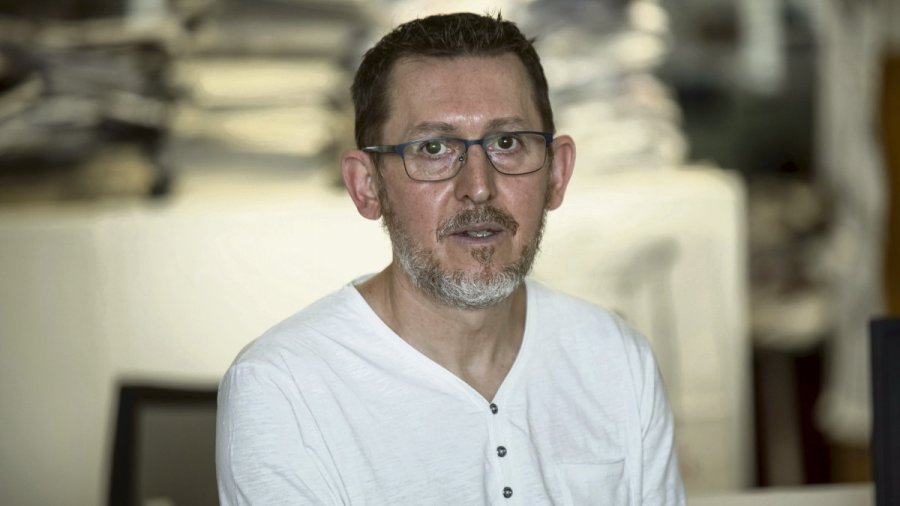

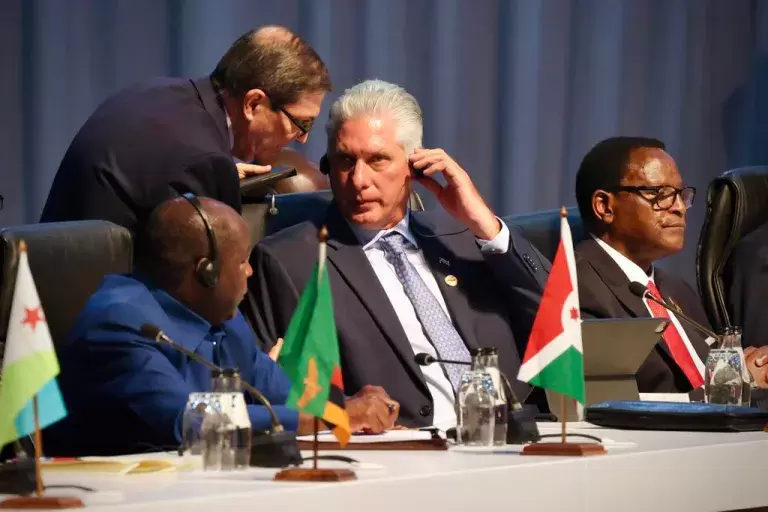
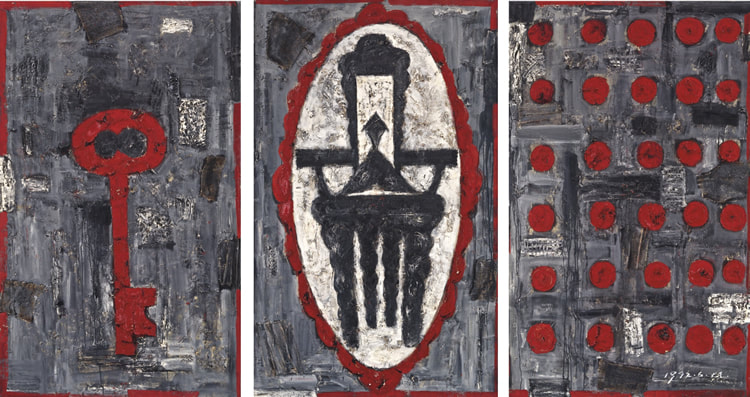




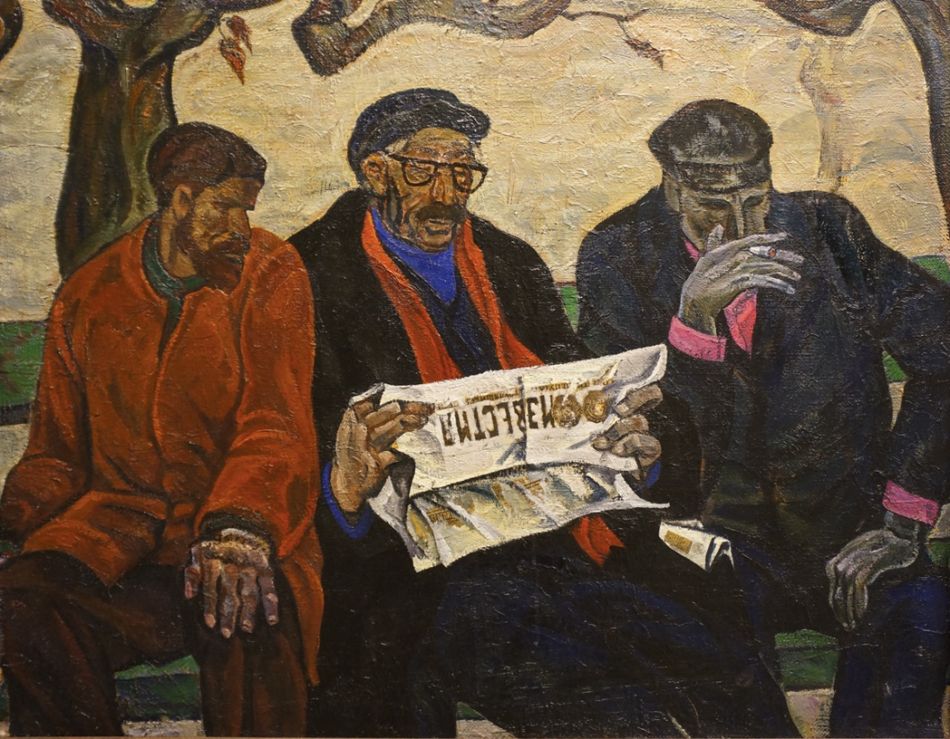
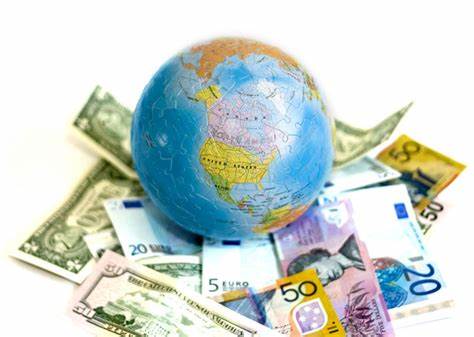
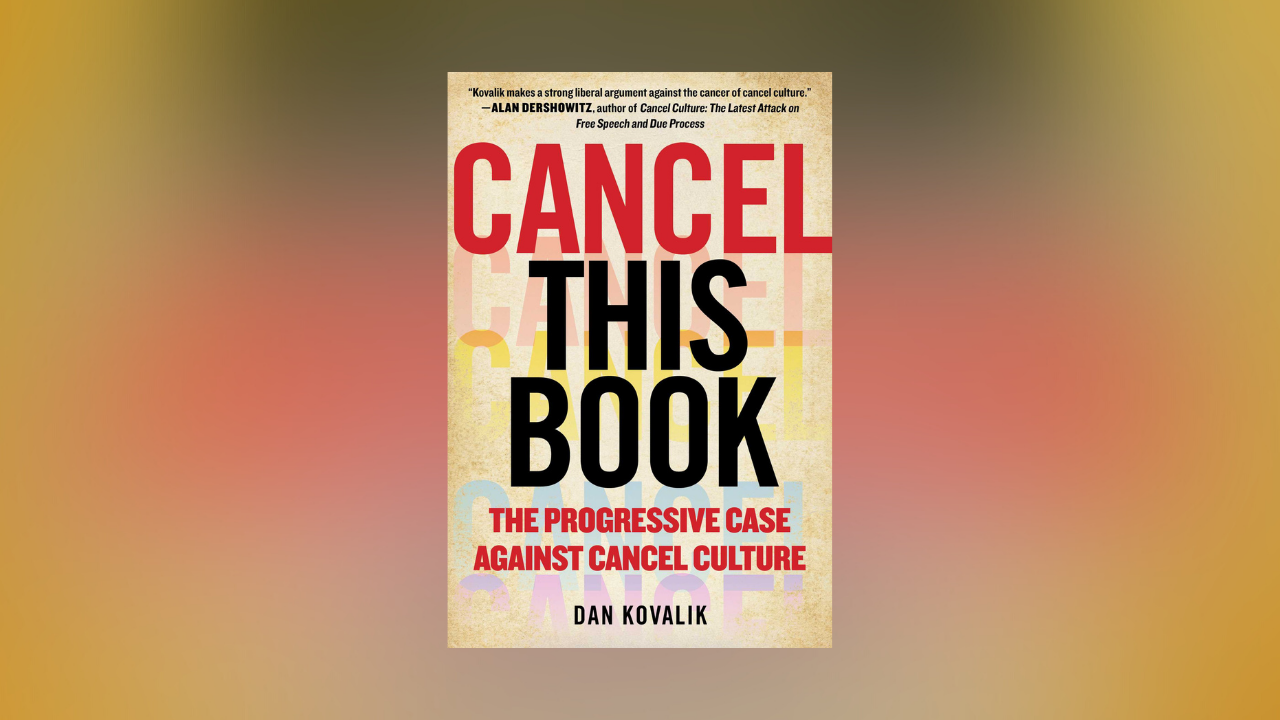
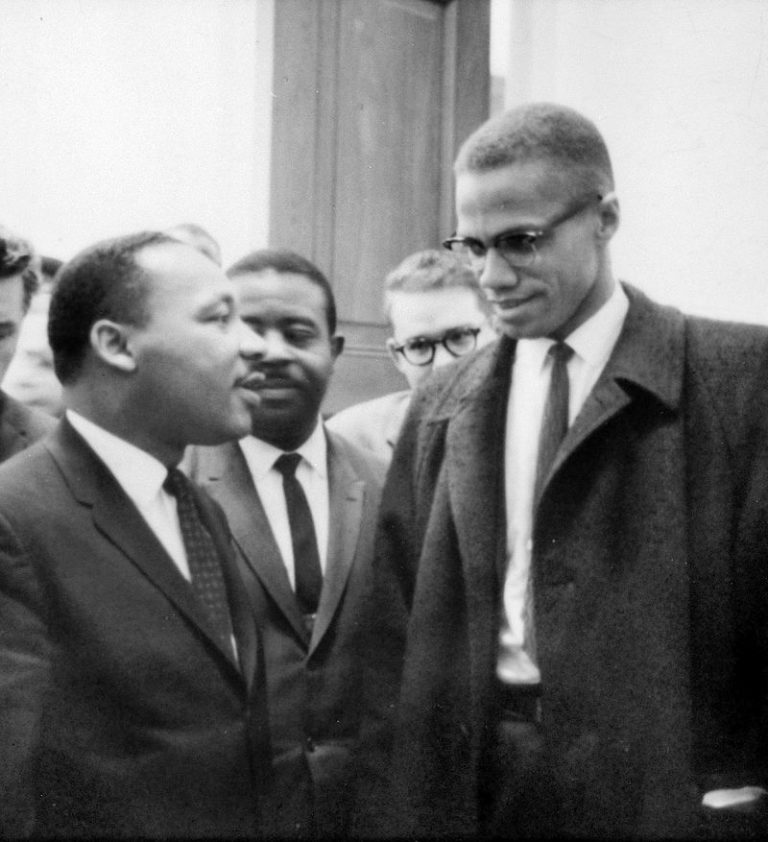

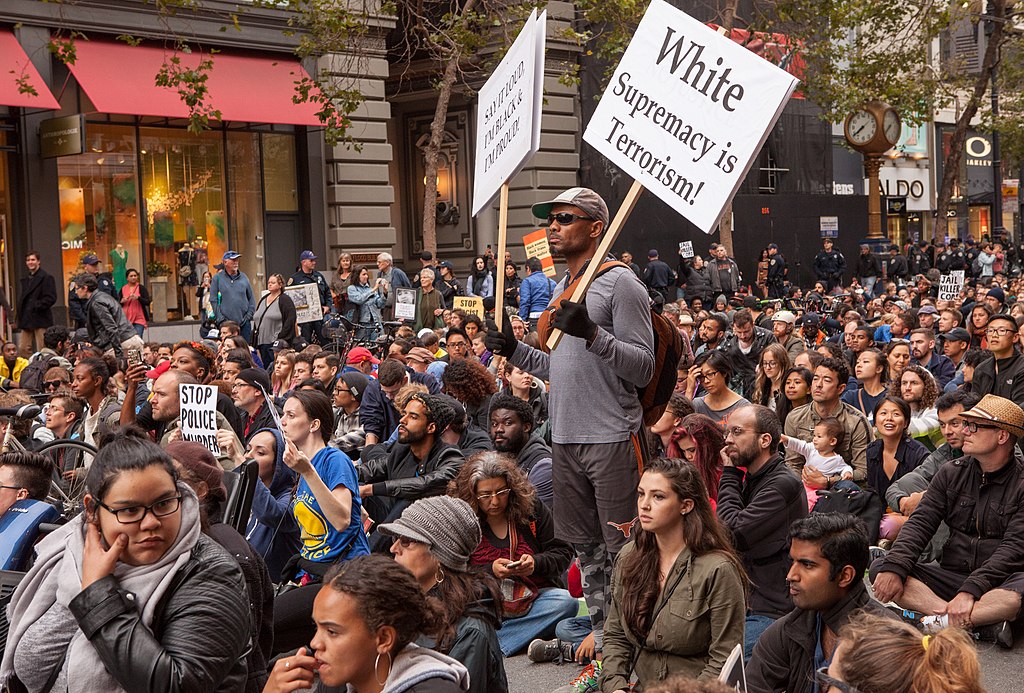
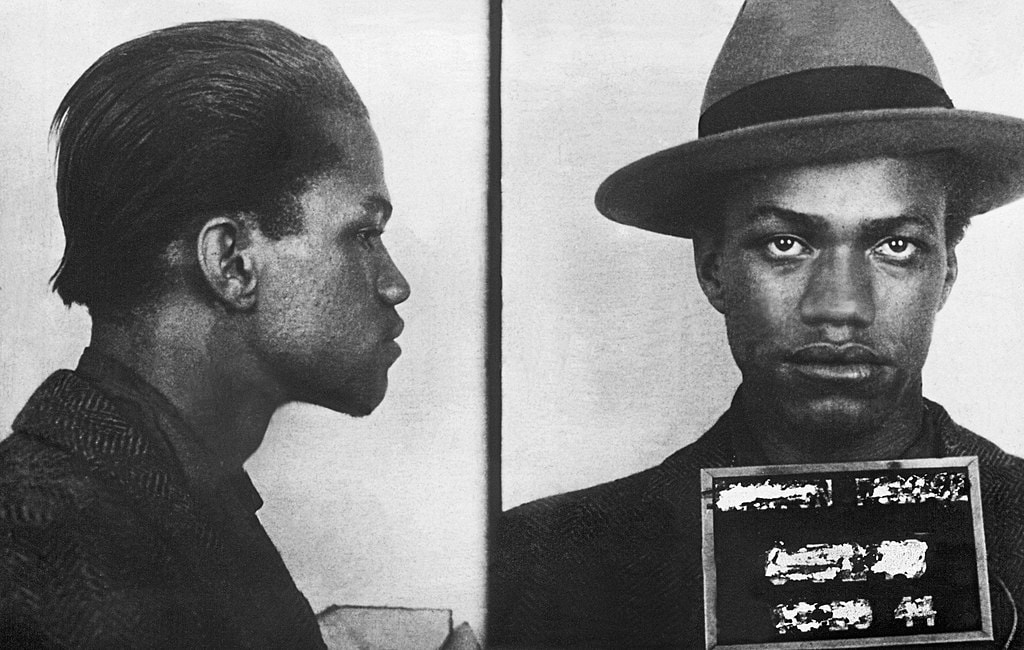


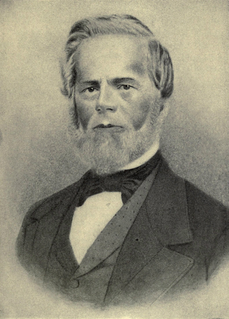
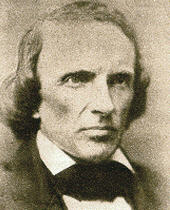
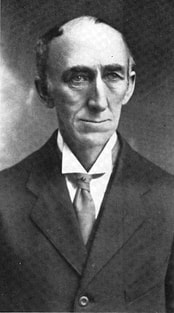

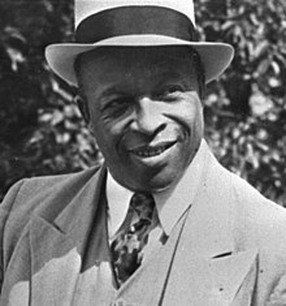
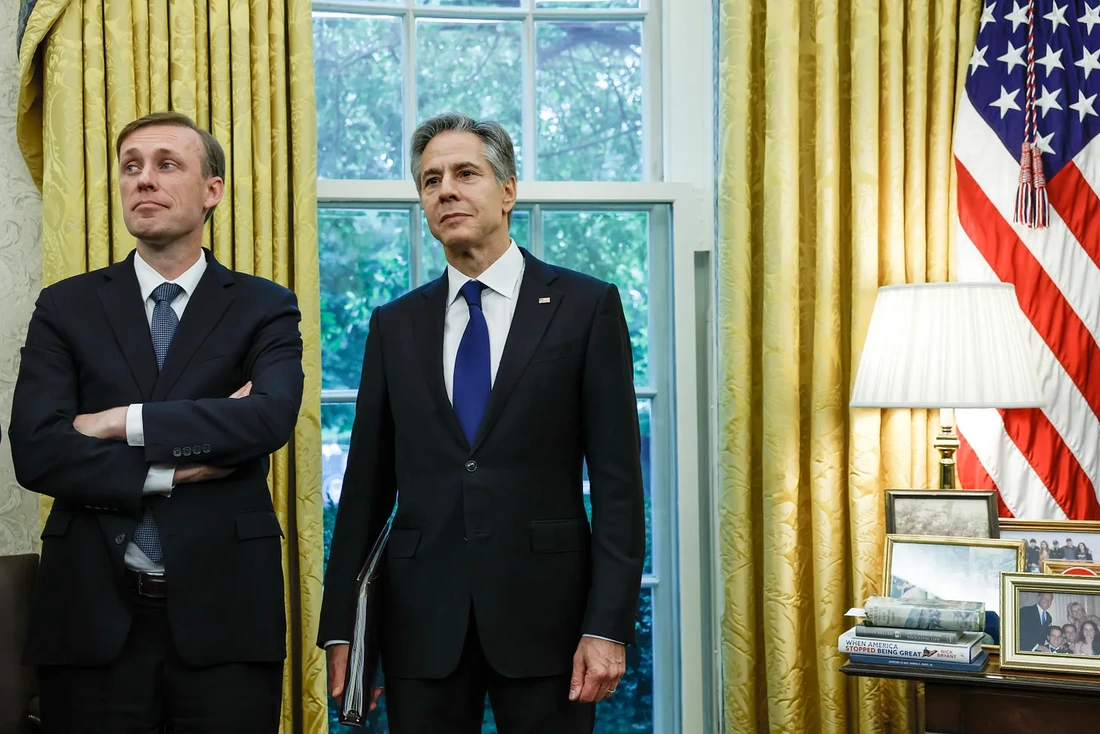
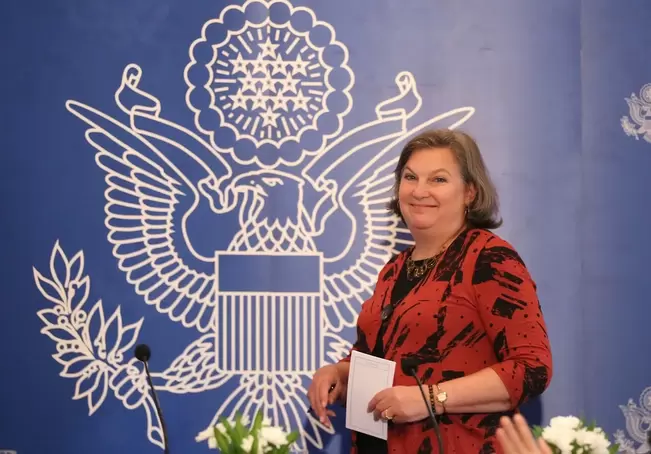
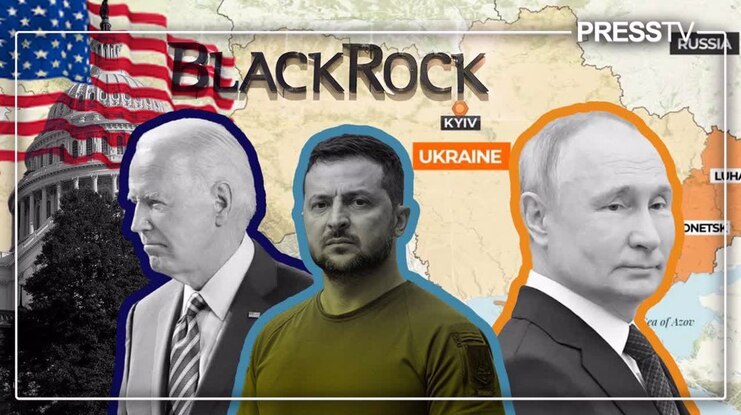

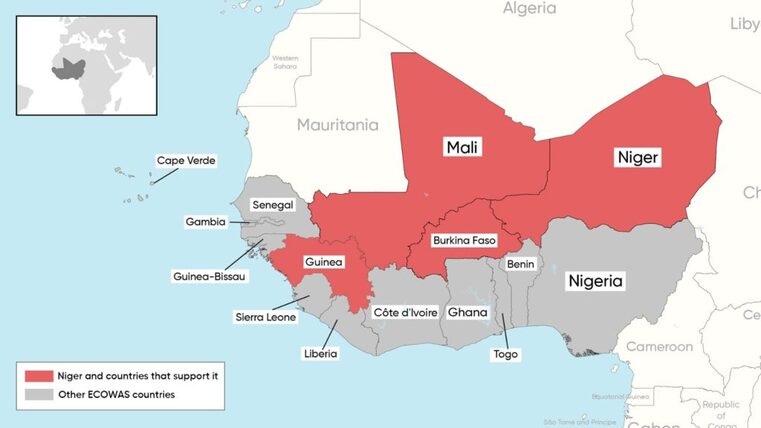
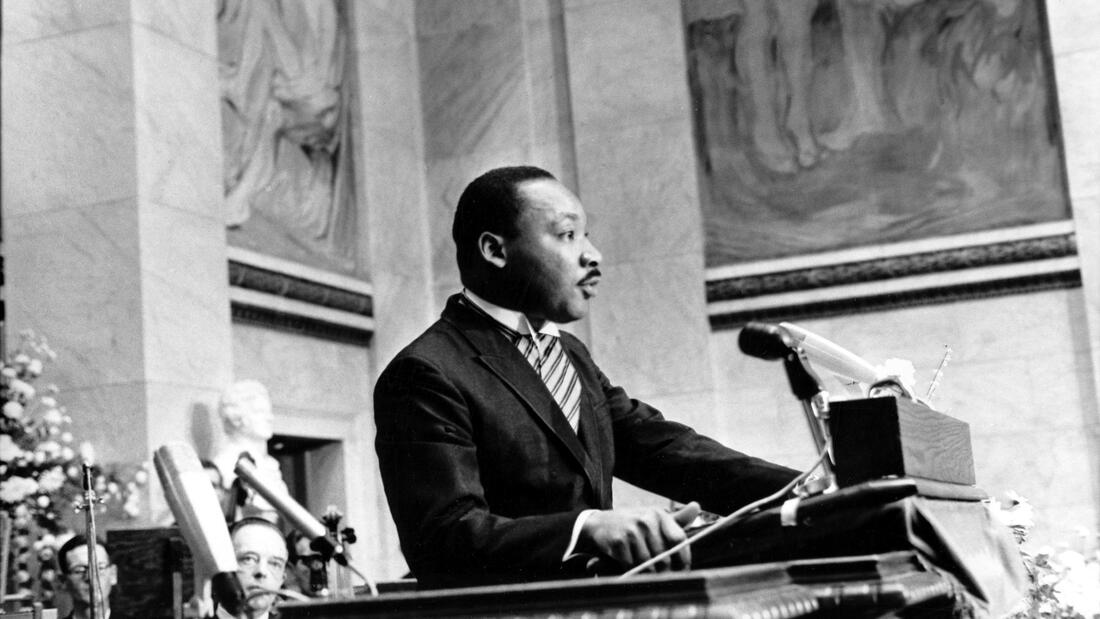
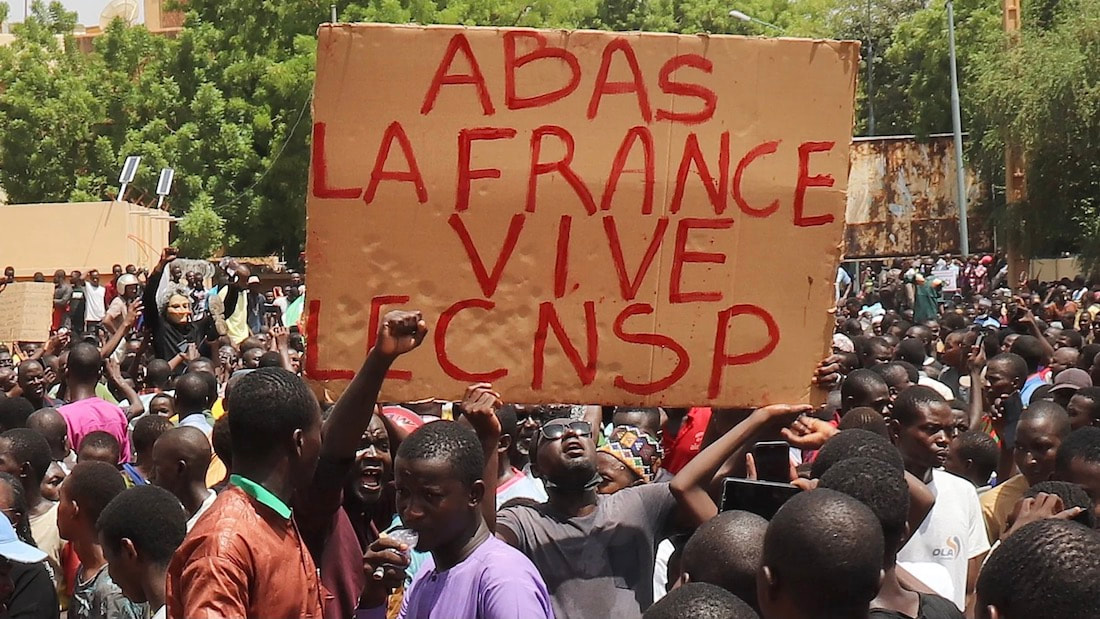
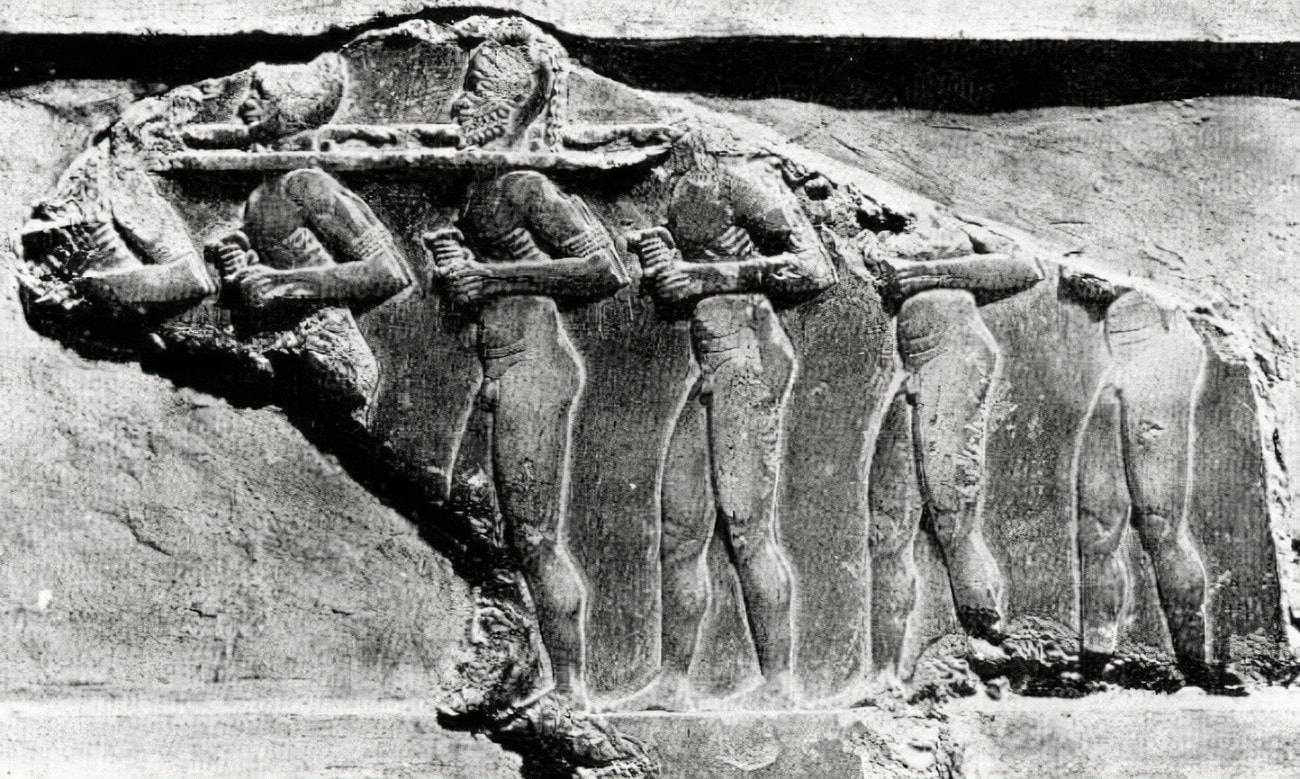


 RSS Feed
RSS Feed